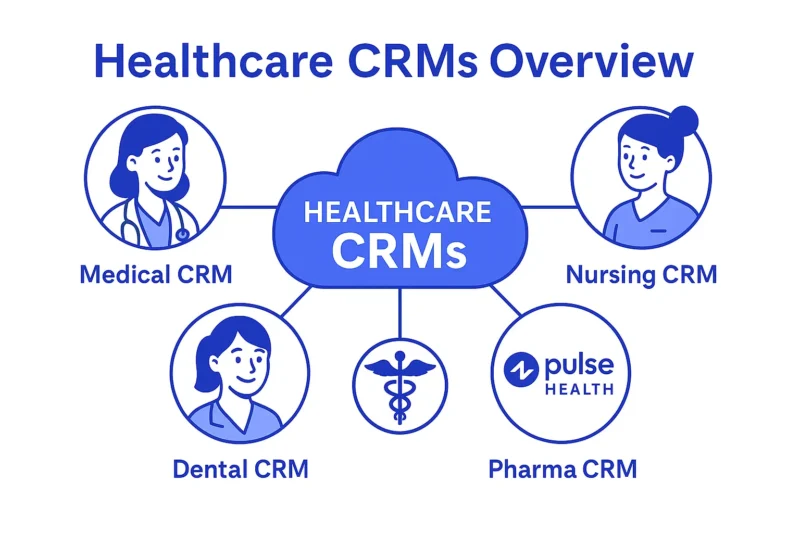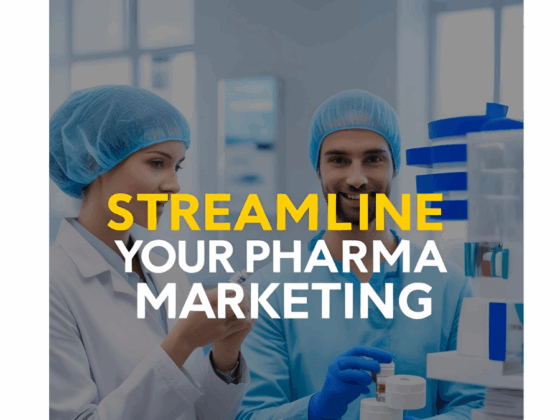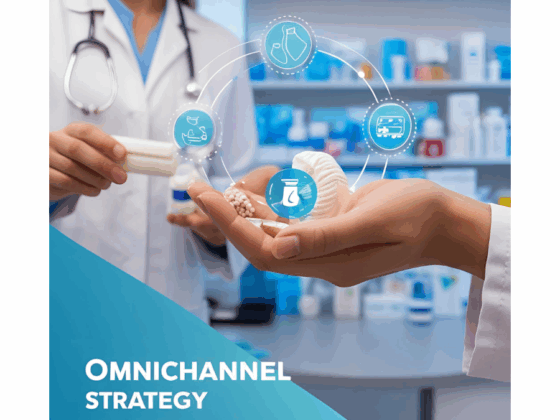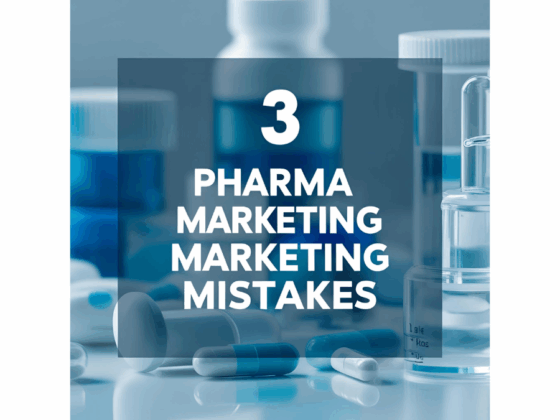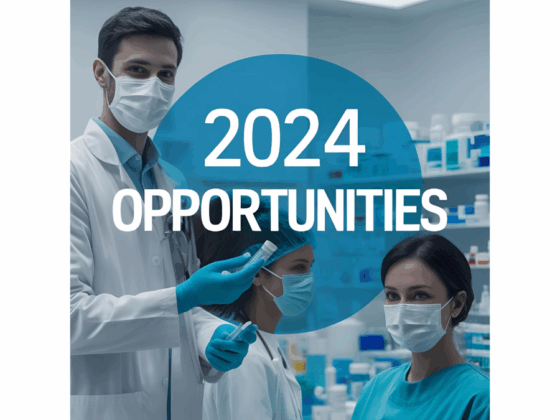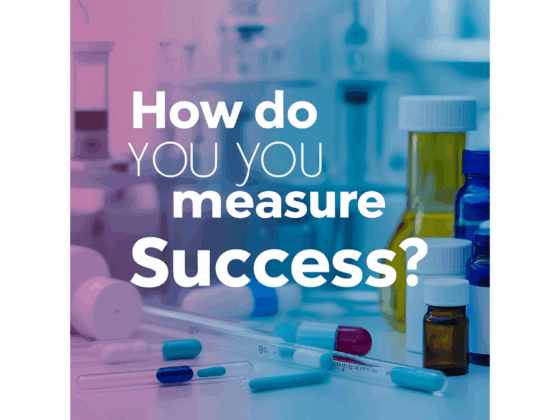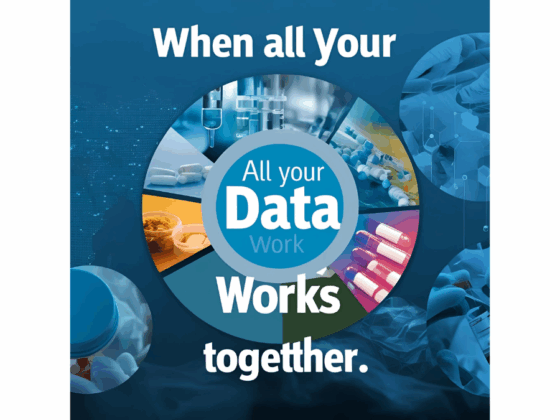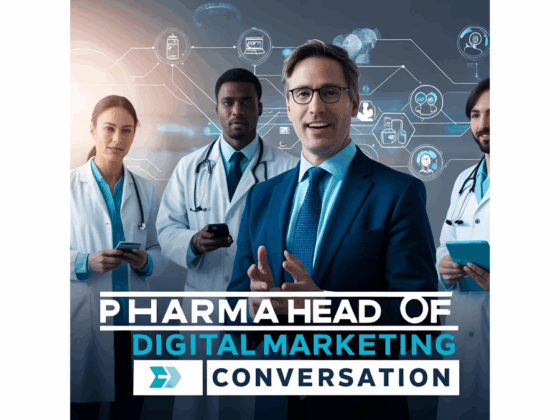Why CRMs Designed Specifically for Healthcare Are Transforming Healthcare Engagement
Are you wondering how a customer relationship management system is transforming healthcare? CRM and healthcare enhancements improve patient care and streamline operations by enhancing patient-provider relationships and optimizing administrative tasks. This article explores the different types of healthcare CRMs, their key features, benefits, challenges, and future trends. Get ready to learn how these systems can elevate your healthcare practice.
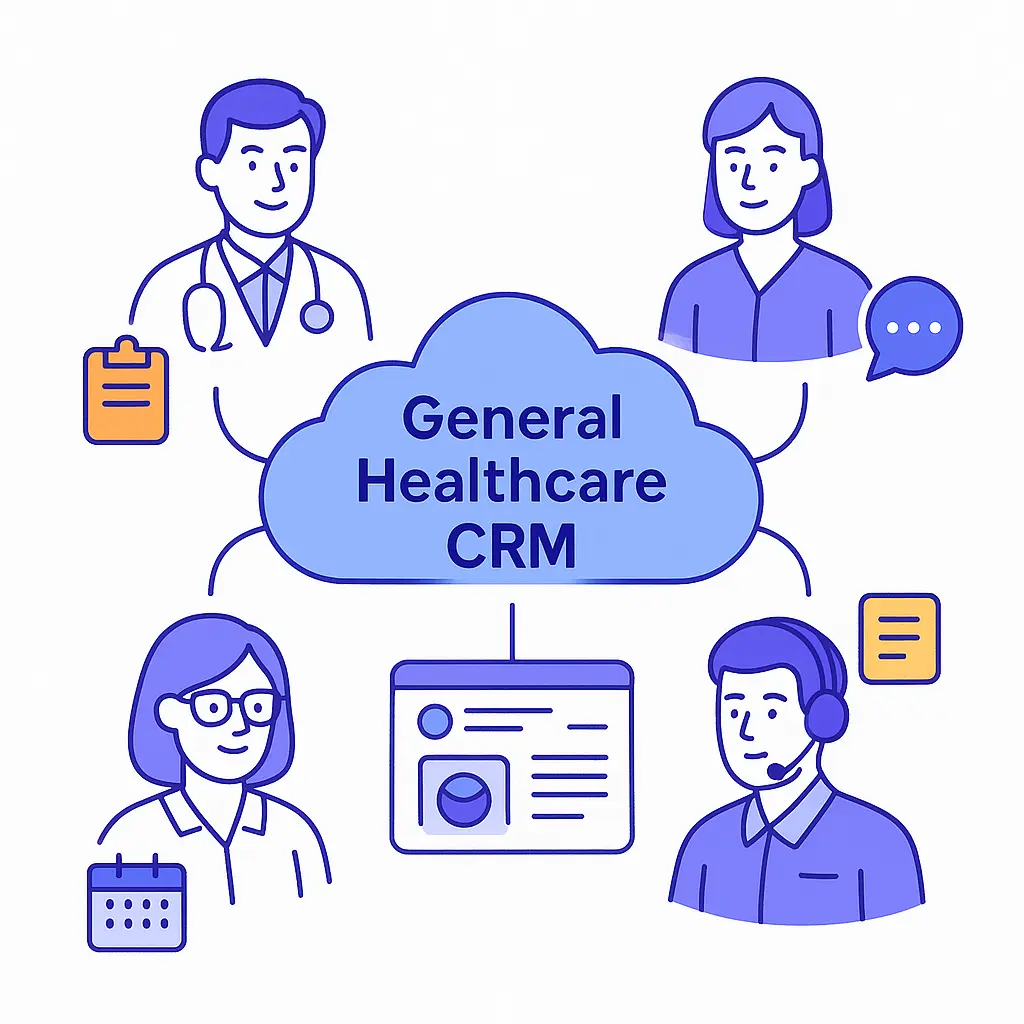
Key Takeaways
- AI and predictive analytics in healthcare CRM drive data-driven decisions and boost efficiency, improving patient outcomes.
- Healthcare CRMs personalize interactions, boost engagement, and streamline operations.
- Integrating CRM with healthcare systems secures patient data and enhances care coordination.
Understanding CRMs in Healthcare
Customer Relationship Management (CRM) systems in healthcare are a specialized tool. Centralized patient data enables teams to access vital clinical and operational insights, facilitating better coordination of patient-provider interactions and informed decision-making regarding treatment plans. Its purpose is to enhance patient care and streamline healthcare operations.
These systems aim to create exceptional care experiences, ultimately fostering strong relationships and improving health outcomes.
Healthcare CRMs support providers and improve patient engagement by fostering better patient-provider relationships and delivering quality care.
They also streamline marketing processes, which leads to improved patient acquisition and retention. Additionally, patient relationship management plays a crucial role in these processes.
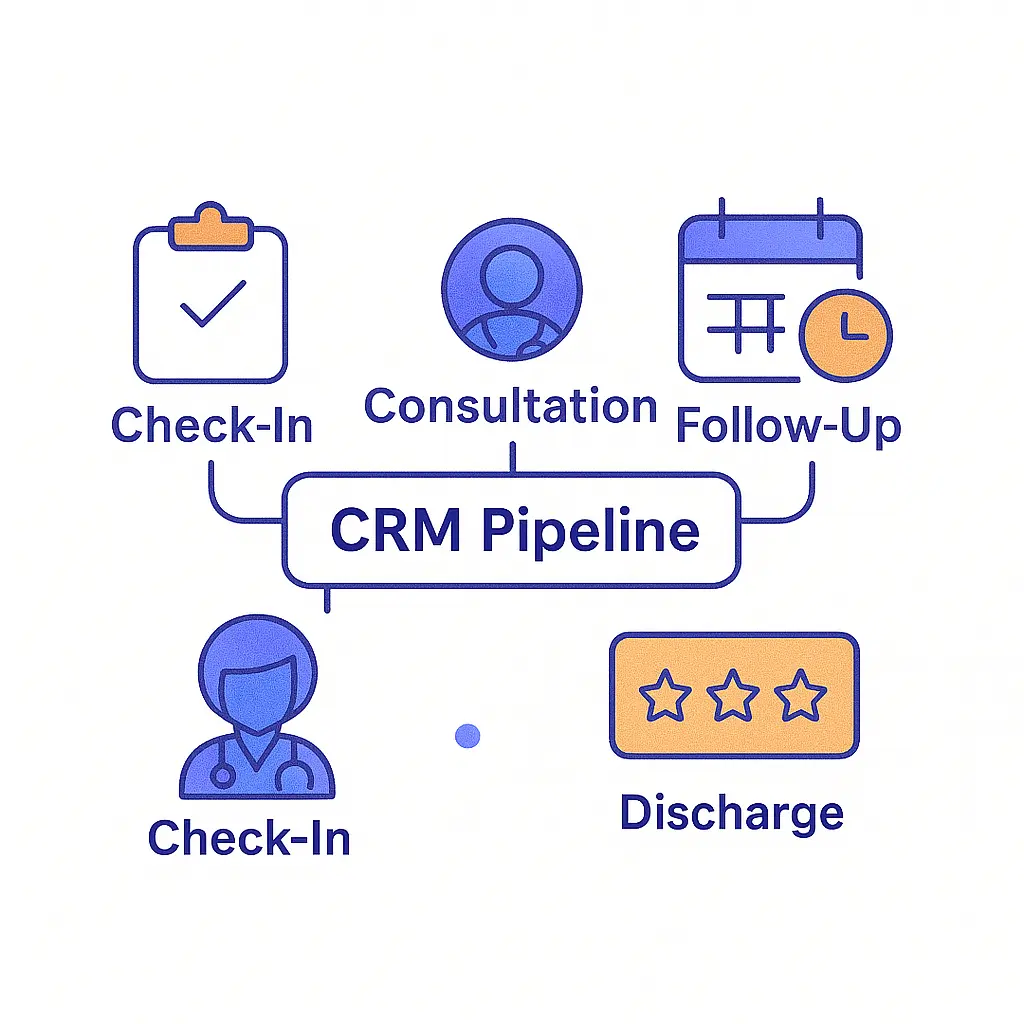
Healthcare CRMs focus on personalization and support, ensuring that patient interactions are tailored to individual needs, thereby improving staff experience and resource allocation. CRMs are indispensable tools in modern healthcare delivery, supporting staff and enhancing patient care to achieve better health outcomes with healthcare crm software.
Types of CRM Systems Used in Healthcare
In healthcare, customer relationship management systems are primarily utilized for sales processes and marketing functions to manage patient relationships and improve communication. Sales CRMs automate communication and relationship management to engage potential patients, whereas marketing CRMs build brand trust and deepen relationships via targeted messaging and advertisements.
By managing the progression of the patient journey and patient relationships through defined stages, these systems ensure a seamless care experience.
Patient Relationship Management (PRM) CRM
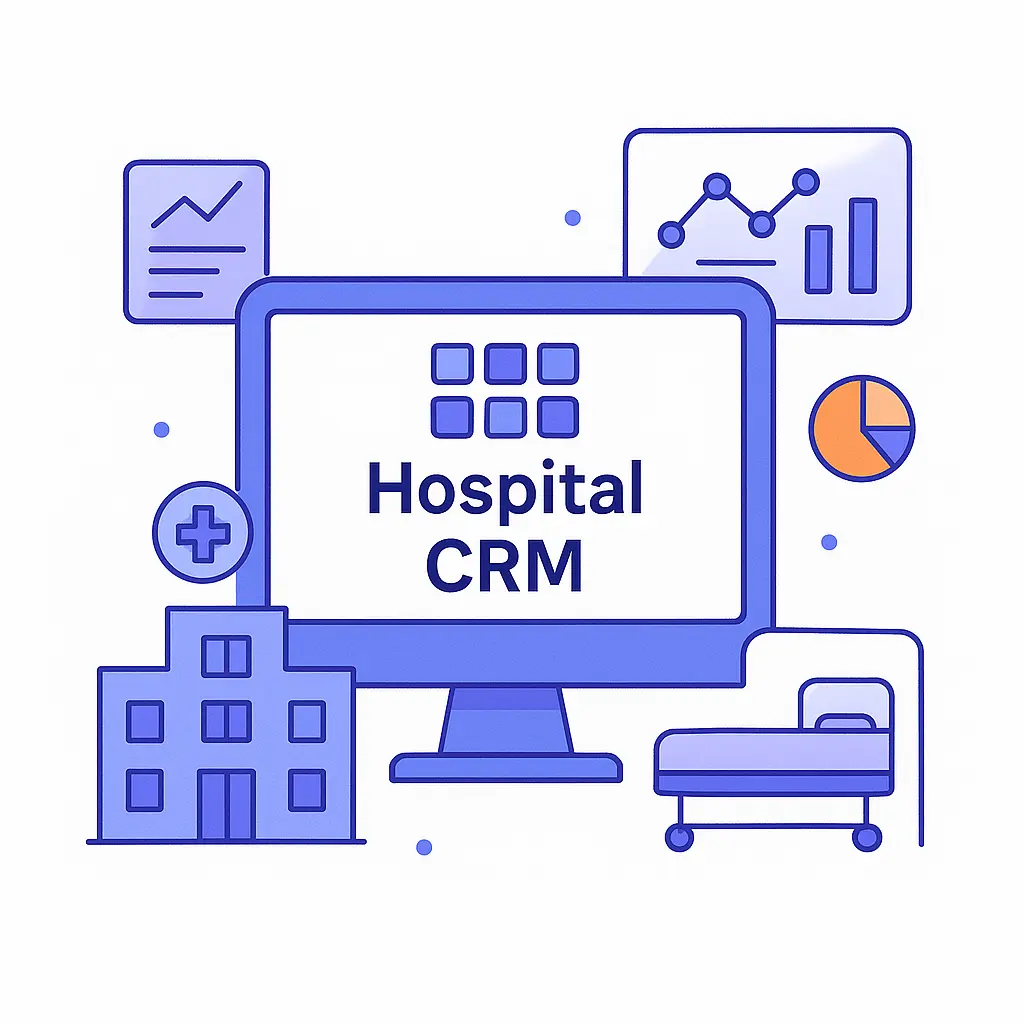
Designed for hospitals, clinics, and private practices, PRM CRMs centralize patient contact info, appointment scheduling, follow-up reminders, and satisfaction surveys.
These systems help care teams personalize outreach, reduce no-shows, and close communication gaps across the patient journey.
Provider/Referral CRM
Used by medical groups and health networks, this CRM focuses on building and maintaining relationships with referring physicians, specialists, and care partners. Key features include automated referral tracking, co-management communications, and performance analytics to optimize collaboration and care continuity.
Payer/Insurance CRM
Tailored to payers, these platforms manage policyholder inquiries, claims workflows, appeals, and wellness program outreach.
Integrations with claims adjudication engines and eligibility databases ensure faster resolutions and better member engagement.
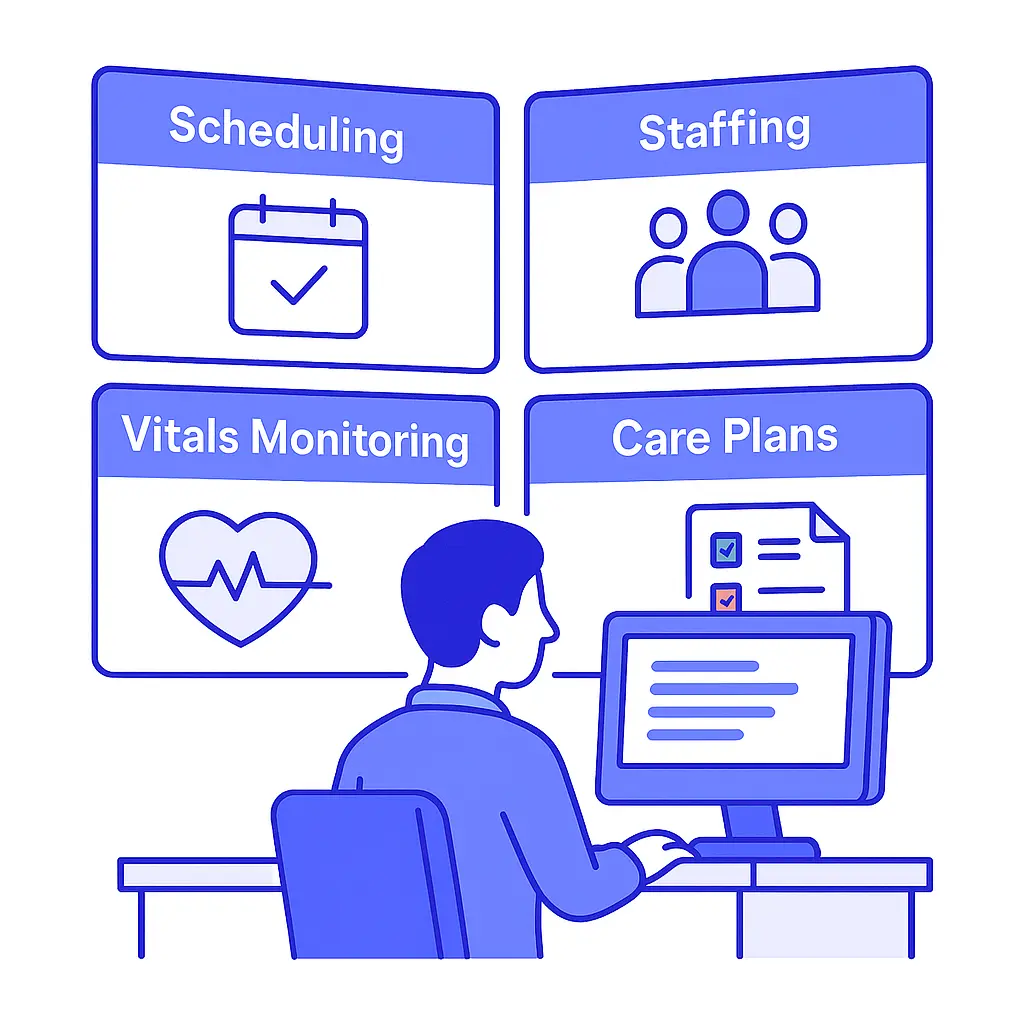
Medical Device & Equipment CRM
Manufacturers of devices and diagnostic equipment use this CRM to support clinical users, manage service contracts, schedule maintenance, and track product performance in the field. Seamless integration with IoT telemetry enables proactive support and compliance tracking.
Pharma CRM (Our Specialty at Pulse Health)
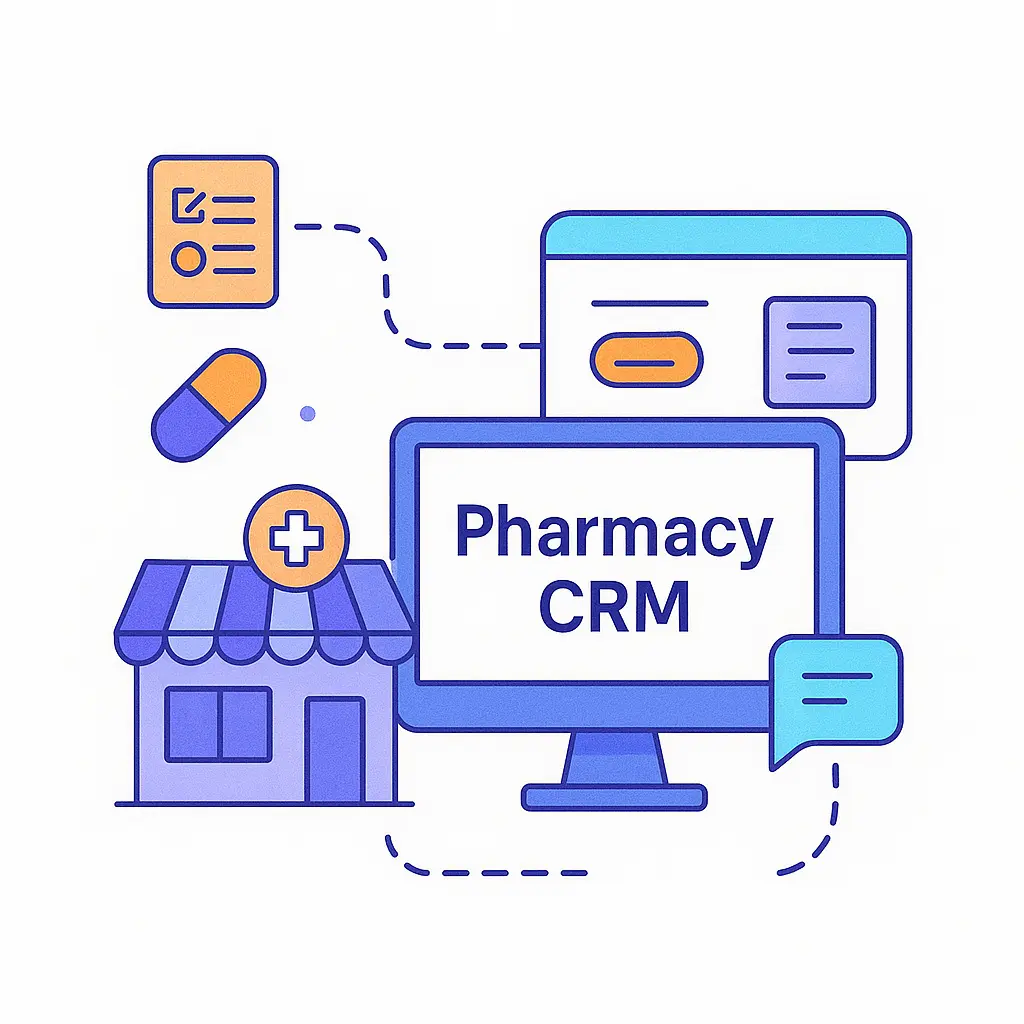
Pharmaceutical manufacturers and life-science organizations leverage Pharma CRM to coordinate field-force activities, manage key opinion leader (KOL) relationships, track drug launches, and execute targeted marketing campaigns.
At Pulse Health, our Pharma CRM platform is built to help you monitor product performance in the U.S. market, engage healthcare professionals, and ensure regulatory-compliant communications every step of the way.
Key Features of Healthcare CRMs
By consolidating patient data from various sources, healthcare CRMs create a comprehensive view of patient history, which enhances interaction and care. By integrating clinical and claims data, care teams can centrally store and access various types of information to enhance patient care plans. Workflow automation features streamline business processes, cut down staff workload, and speed up service delivery.
Advanced analytics capabilities provide actionable insights and analytics and reporting capabilities, improving both clinical and financial outcomes.
Differences Between Healthcare CRM and EHR
Electronic Health Record (EHR), Electronic Medical Record (EMR), and Customer Relationship Management (CRM) systems each play a distinct role in healthcare operations:
- EHR: Longitudinal, cross-provider digital record of patient diagnoses, treatments, medications, and labs.
- EMR: Practice-specific electronic chart capturing visit notes, diagnoses, prescriptions, and treatment progress.
- CRM: Platform managing appointments, reminders, billing, feedback, and targeted patient communication workflows.
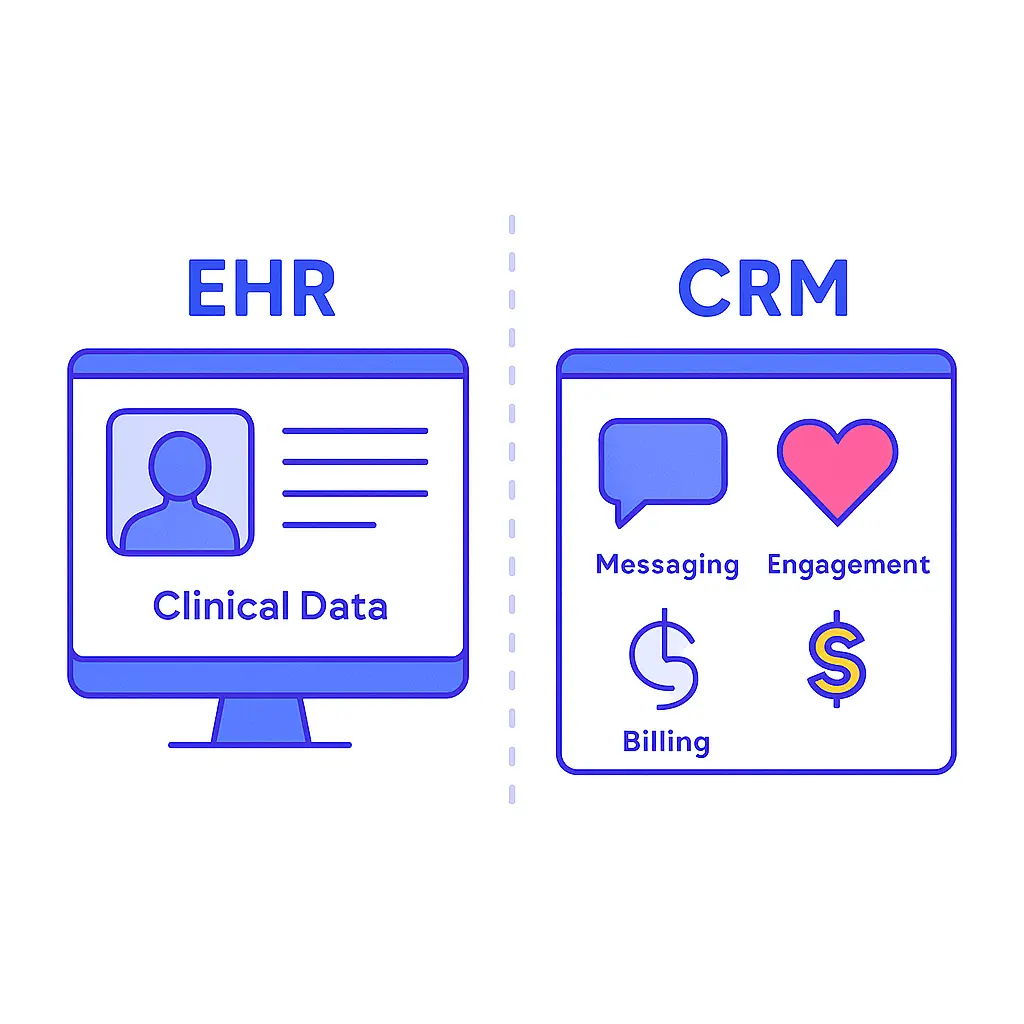
Together, EHRs/EMRs handle clinical documentation and data exchange, while CRMs drive patient engagement and operational efficiency.
Understanding this distinction helps healthcare providers improve patient relationships and streamline operations.
Benefits of Implementing a Healthcare CRM
Implementing a healthcare CRM enhances patient engagement and satisfaction through tailored interactions. While basic patient management is essential, healthcare CRM systems go beyond by streamlining processes and improving patient outcomes, significantly boosting operational efficiency.
Cloud-based CRM solutions are transforming healthcare by providing better patient care and operational efficiency. These systems also support staff, enhance provider trust, and increase patient satisfaction.
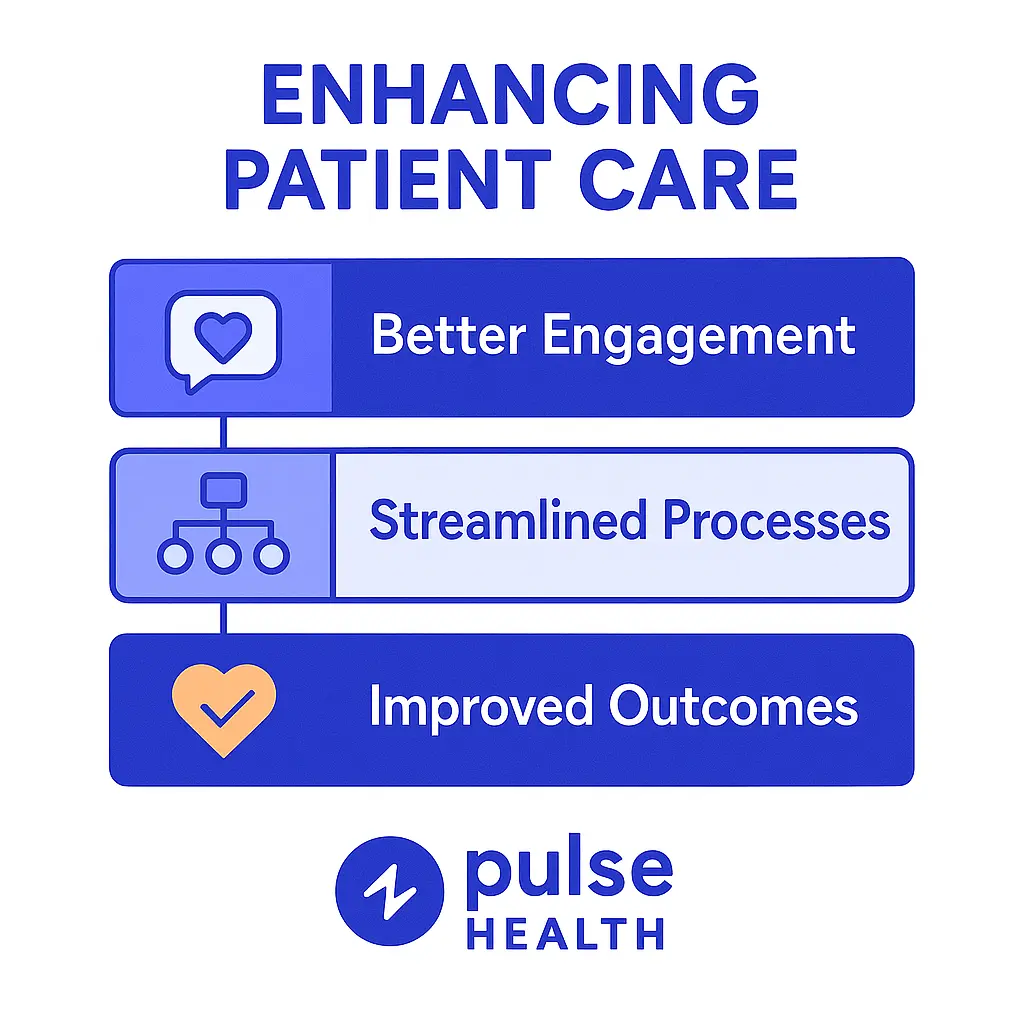
Enhancing Patient Engagement
Healthcare CRMs assist organizations in personalizing patient interactions by consolidating various data sources, which enhances engagement and improves overall patient satisfaction. Consolidating a patient’s medical history alongside other relevant data allows healthcare providers to make informed, data-driven decisions, leading to better treatment plans and patient engagement. For example, a healthcare provider increased patient satisfaction and retention by implementing a customized CRM that streamlined access to patient information, sending personalized reminders and follow-ups.
Automated communication tools facilitate continuous patient interaction beyond appointments, while collecting patient feedback supports ongoing quality improvement to streamline communication.
Streamlining Administrative Tasks

By automating data management and improving patient care coordination, healthcare CRMs enhance operational efficiencies. AI technologies in these systems use chatbots to facilitate patient interactions and automate routine tasks.
Telehealth platforms with CRM features significantly reduce administrative workloads by automating processes, which decreases call volume by 40-60%.
In addition, integrating real-time appointment management with patient records reduces wait times.
Improving Patient Outcomes
Implementing CRM tools to track patient interactions has led to improved follow-up rates and better patient satisfaction for healthcare providers. Healthcare teams leverage these tools to enhance coordination, improve patient care, and foster collaboration among healthcare professionals. Identifying specific areas within patient management where CRM can add value helps tailor the system to the organization. Proper staff training enhances system adoption and improves overall patient care quality.
Predictive analytics in healthcare CRM identifies potential health risks early, enabling timely interventions to improve patient outcomes.
Business Process Management with CRM
Business Process Management (BPM) is a crucial aspect of implementing a healthcare CRM system, as it enables healthcare organizations to streamline their operations and improve patient care. BPM involves identifying, designing, executing, and monitoring business processes to achieve specific goals, such as improving patient satisfaction and reducing costs.
A healthcare CRM system can help healthcare organizations automate and optimize their business processes, such as patient intake, appointment scheduling, and billing.
By integrating BPM with CRM, healthcare organizations can create a seamless and efficient patient experience, from initial contact to post-visit follow-up.
BPM can also help healthcare organizations identify areas for improvement and implement changes to optimize their workflows and improve patient outcomes.
Healthcare CRM systems provide real-time analytics and reporting, enabling healthcare organizations to track key performance indicators (KPIs) and make data-driven decisions.

By leveraging BPM and CRM, healthcare organizations can improve operational efficiency, reduce costs, and enhance patient engagement. Additionally, BPM can help healthcare organizations ensure compliance with regulatory requirements, such as HIPAA, by implementing standardized processes and procedures.
In summary, the integration of BPM with healthcare CRM systems offers a comprehensive approach to managing patient care and operational processes. This synergy not only enhances patient satisfaction but also drives continuous improvement in healthcare delivery.
Overcoming Challenges with Healthcare CRM
Implementing CRM systems often challenges healthcare organizations, particularly in managing outdated patient data. Failure to analyze patient data effectively can result in significant risks, including potential lawsuits due to breaches of confidentiality. Health insurance portability is crucial to ensure compliance with regulations like HIPAA, emphasizing the need to protect patient data and maintain data integrity. Data security, secure data storage, and HIPAA compliance are paramount.
Effective integration of healthcare CRMs with existing systems is also essential to protect patient information and enhance care delivery.
Navigating Clinical Complexity
Managing clinical complexity is a major challenge in healthcare CRM that complicates care delivery. Effective CRM systems help streamline clinical processes, ensuring efficient patient data management and seamless care delivery.
Ensuring Data Security and HIPAA Compliance
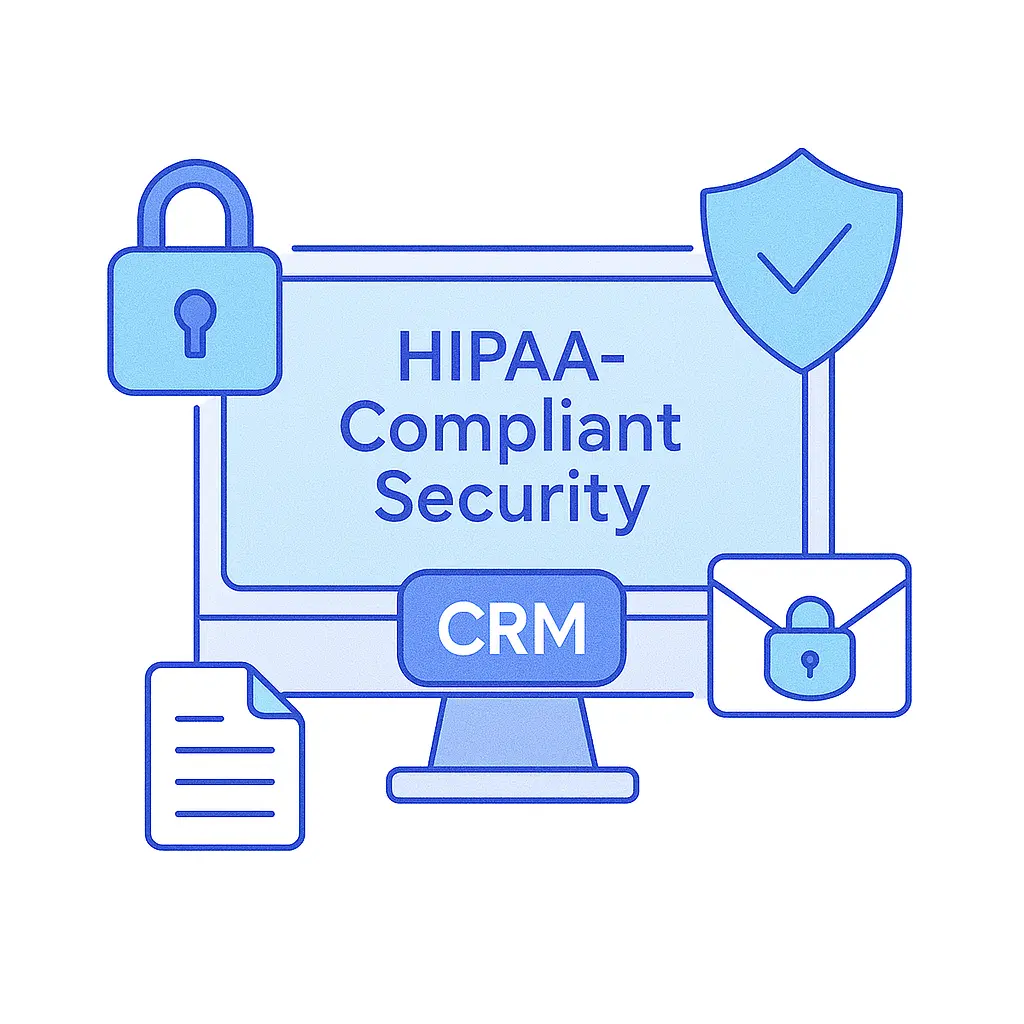
Adopting a healthcare CRM requires compliance with regulations like HIPAA to protect patient data.
Healthcare CRMs must follow security regulations to safeguard sensitive patient information.
Continuous training and audits ensure proper handling of patient data in CRMs, meeting all healthcare security regulations.
Integrating with Existing Systems
Integrating CRM systems with EHRs reduces data entry errors, enhances operational efficiency, and improves care coordination and patient interactions.
CRM solutions must be compatible with existing healthcare systems to facilitate data integration and ensure seamless operation.
When assessing vendors, inquire about their integration capabilities with existing systems, as future CRM solutions focus on interoperability.
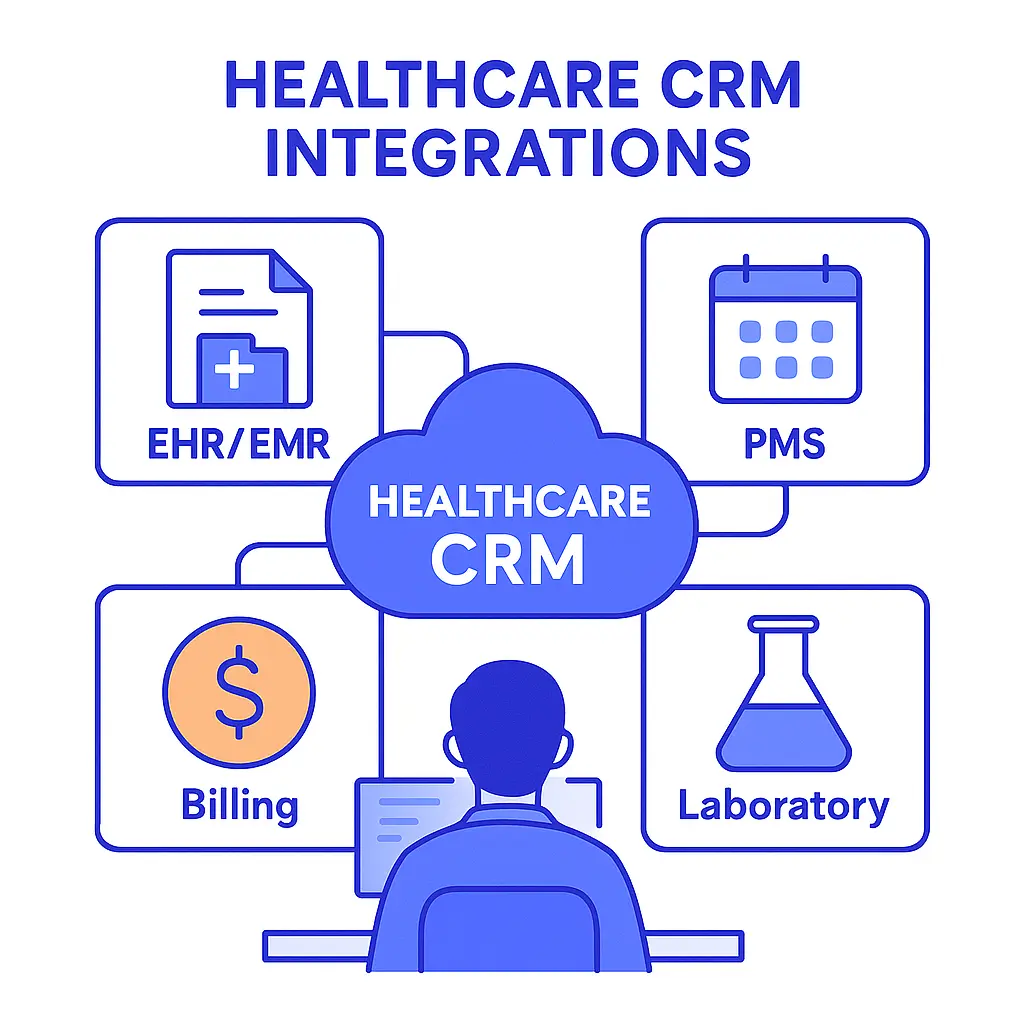
Real-World Applications of Healthcare CRM
Healthcare organizations increasingly use CRM systems to enhance patient care and streamline operations in the healthcare industry, showing significant improvements in both areas. These CRM systems are integral to providing comprehensive healthcare services by managing patient communication and care processes effectively. For instance, a healthcare provider successfully implemented a CRM system that streamlined their patient follow-up process, leading to better care coordination and improved patient outcomes within the health system.
CRM systems also automate administrative tasks, allowing healthcare providers to manage their schedules efficiently and reduce patient wait times using crm software.
Case Study: Improving Patient Follow-Up
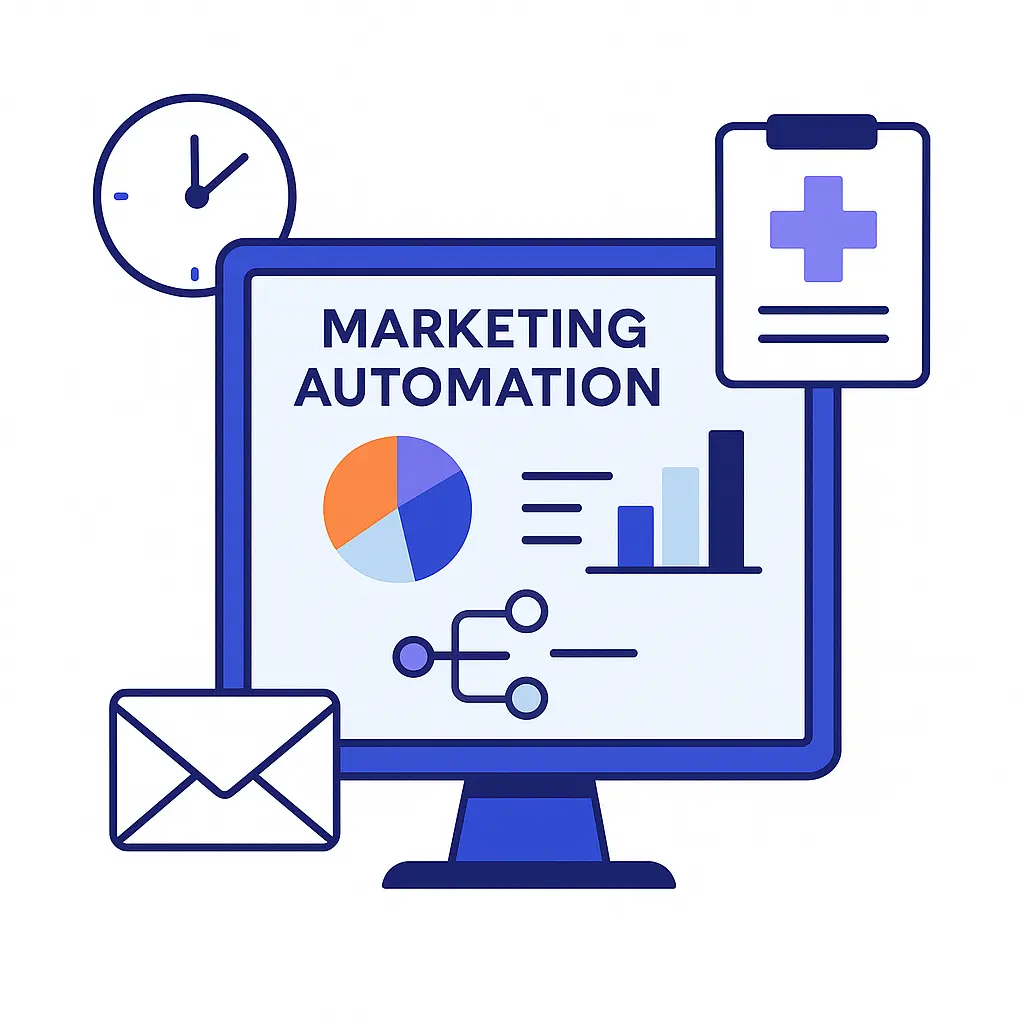
A notable case saw a healthcare provider using CRM for marketing automation to send automated follow-up messages post-appointment, significantly increasing patient behavior adherence to treatment plans.
Medical professionals utilized these CRM systems to enhance patient engagement and care coordination, ensuring better management of workflows and reducing burnout.
Tracking patient interactions through CRMs helped manage patient interactions and provided valuable insights that led to improved patient relationships and improved treatment plans.
Automating Appointment Scheduling
Healthcare CRMs can automate the appointment scheduling process by considering multiple factors such as patient preferences and doctor availability. Automated appointment scheduling systems improve efficiency by allowing patients to book at their convenience and minimize no-show rates with timely reminders.
Enhancing Marketing Efforts with Market Segmentation
CRMs enable healthcare providers to segment patient data and customer data for more targeted marketing efforts based on specific health needs.
Analyzing patient data and segmenting audiences, healthcare CRMs facilitate more effective and targeted marketing campaigns.
This targeted approach is crucial for engaging specific patient demographics and enhance communication overall.
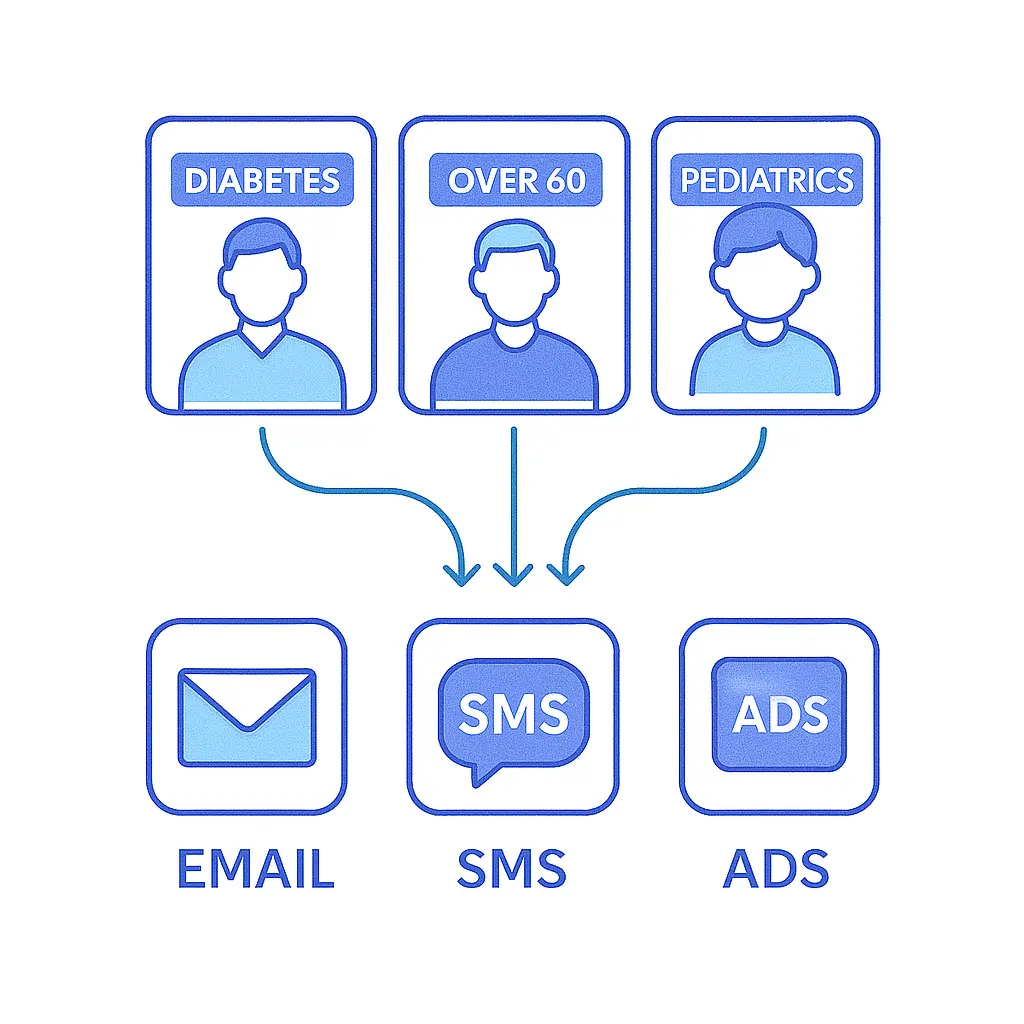
Measuring Success with CRM Software
Measuring the success of a healthcare CRM system is critical to ensuring that it is meeting its intended goals and objectives. Key performance indicators (KPIs) such as patient satisfaction, appointment adherence, and revenue cycle management can be used to measure the success of a healthcare CRM system.
Healthcare organizations can also use metrics such as patient engagement, patient retention, and patient acquisition to measure the success of their CRM system. Additionally, return on investment (ROI) analysis can be employed to measure the financial impact of the CRM system.
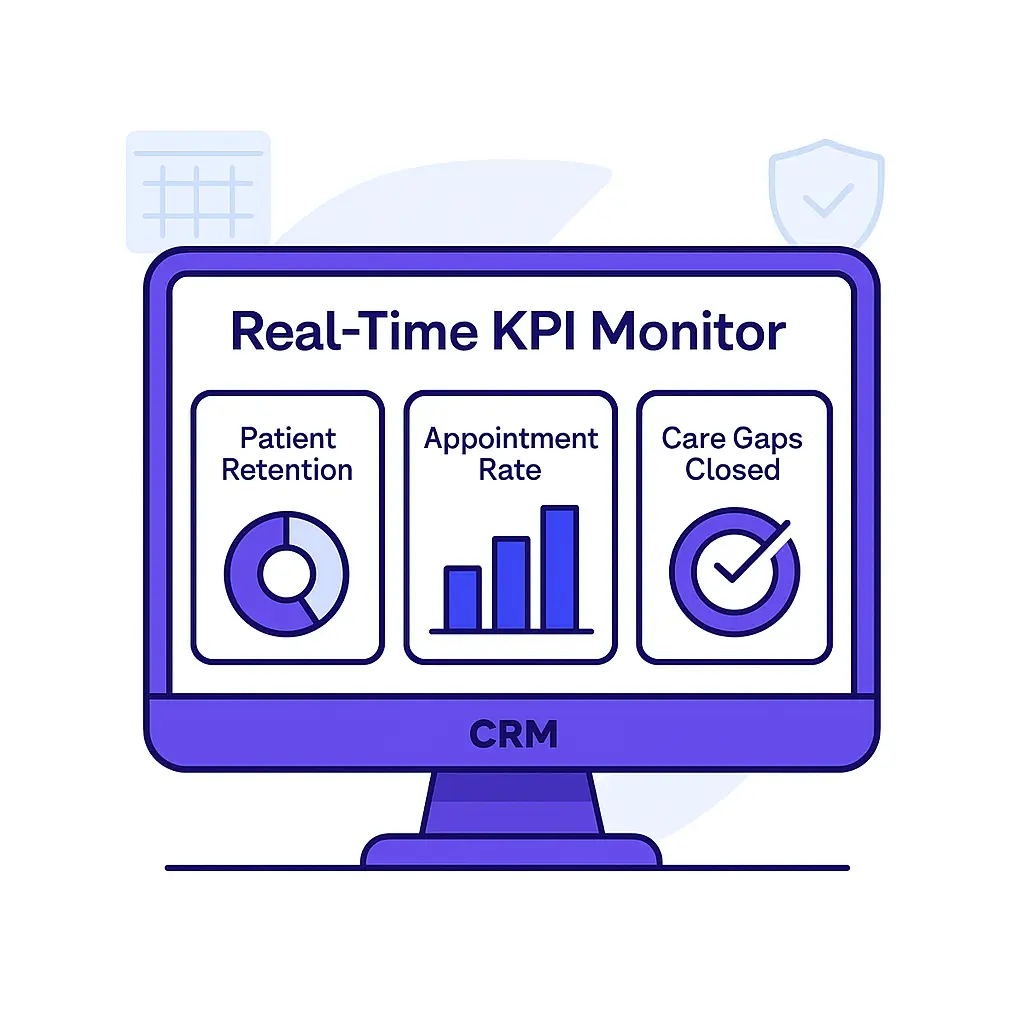
By tracking and analyzing these metrics, healthcare organizations can identify areas for improvement and implement changes to optimize their CRM system and improve patient outcomes.
Healthcare CRM systems provide real-time analytics and reporting, enabling healthcare organizations to track their KPIs and make data-driven decisions.
Leveraging CRM software allows healthcare organizations to improve operational efficiency, reduce costs, and enhance patient engagement. Regularly reviewing and assessing the performance of a healthcare CRM system ensures that it is meeting its intended goals and objectives, driving continuous improvement in patient care and outcomes.
In conclusion, measuring the success of a healthcare CRM system is essential for maximizing its benefits. By focusing on key metrics and leveraging real-time data, healthcare organizations can ensure their CRM systems contribute to better patient care and operational efficiency.
Choosing the Right Healthcare CRM Solution
Choosing the right healthcare CRM solution maximizes benefits and ensures alignment with the organization’s goals.
Healthcare CRMs should offer operational automation for marketing and service processes, analytical tools to understand stakeholder interactions, and facilitate information integration across business functions.
Additionally, implementing healthcare crm solutions can enhance overall efficiency.
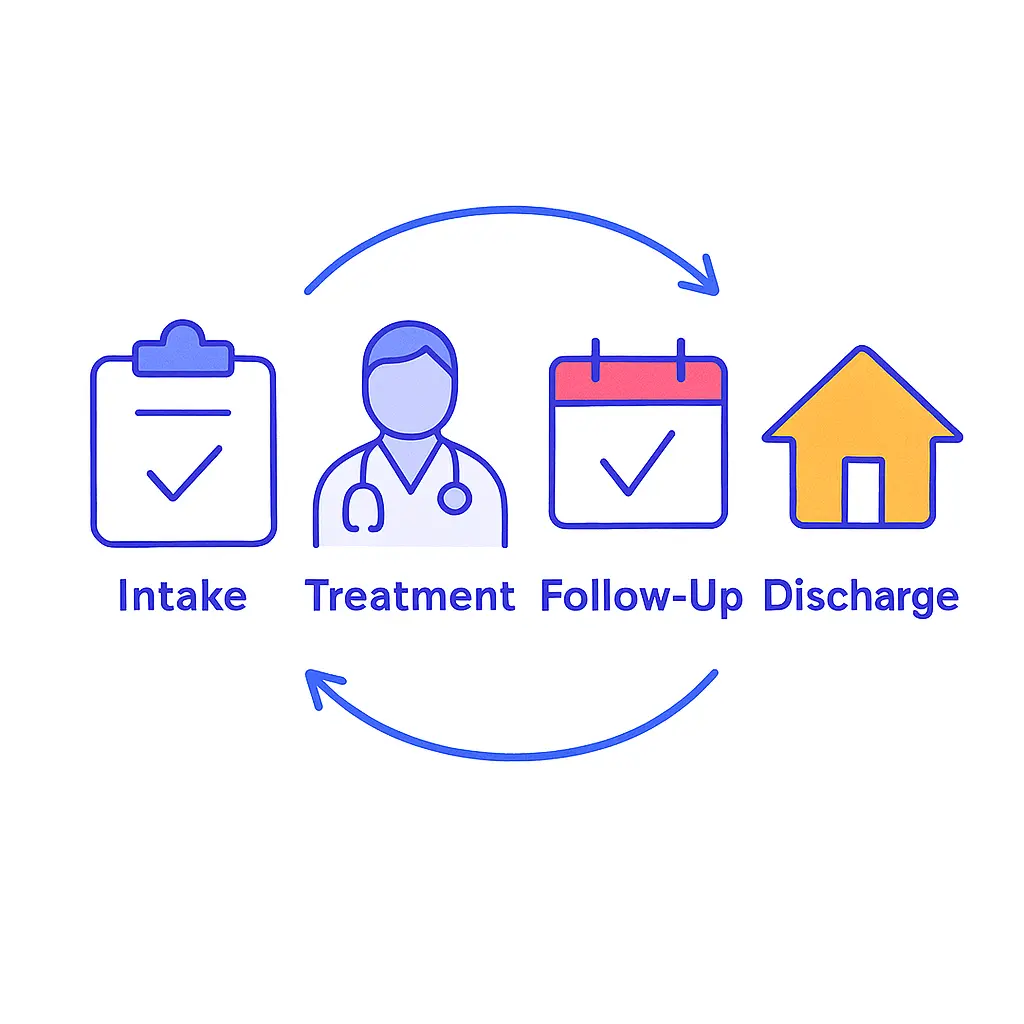
These health systems must streamline patient interactions, ensure regulatory compliance with privacy regulations, and address significant hurdles in data integration and staff adoption.
Assessing Your Needs
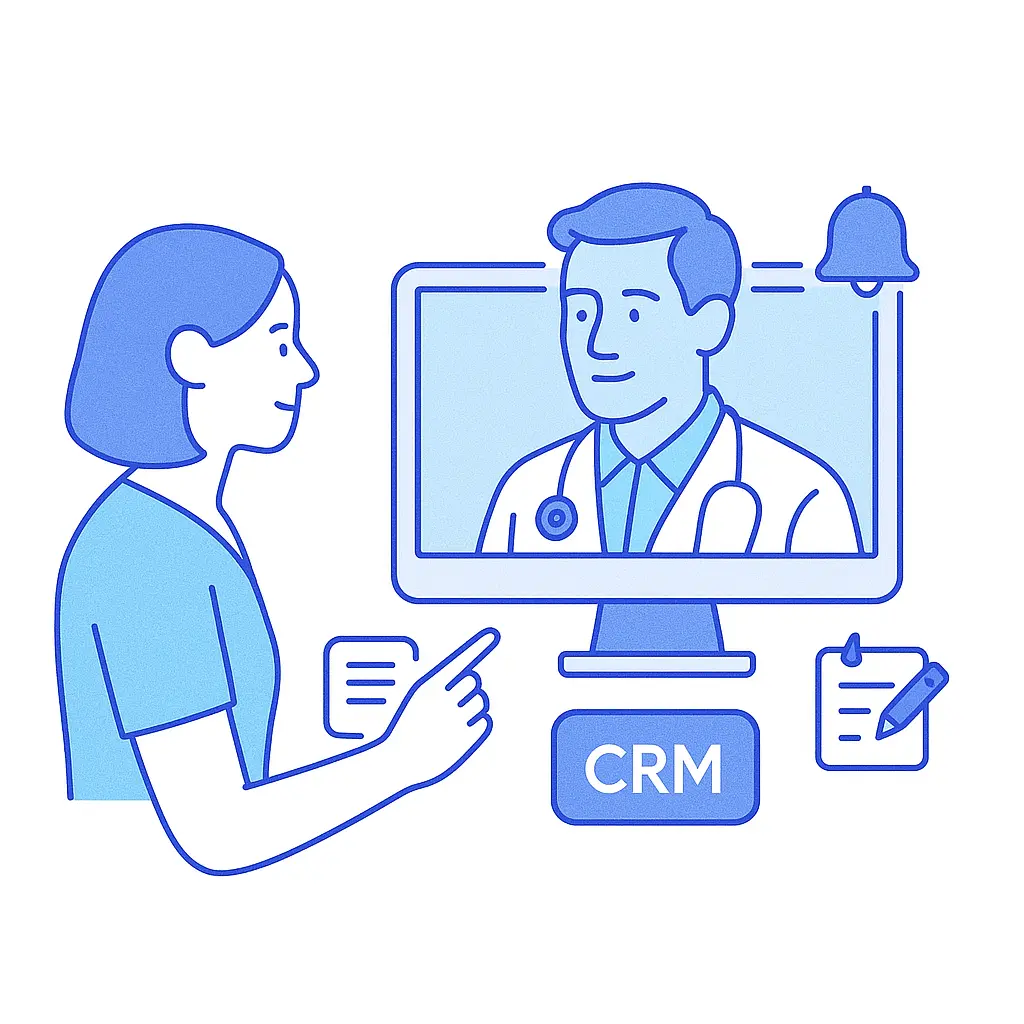
Assessing your healthcare organization’s specific needs ensures the chosen CRM aligns with your goals and improves patient care.
Determine essential features and functionalities to address patient care and operational needs effectively.
Create a list of criteria to evaluate CRM providers, considering features, pricing, support, and scalability based on your organization’s specific needs.
Evaluating CRM Providers
When evaluating healthcare CRM providers, assess their offerings and how they align with your organization’s specific needs. Look for essential features like patient data management, workflow automation, and integration capabilities.
For example, a dental office may need a CRM that allows them to flow through the entire patient journey, from recording intake and creating wellness plans, to scheduling appointments, sending reminders and dealing with follow-up visits.
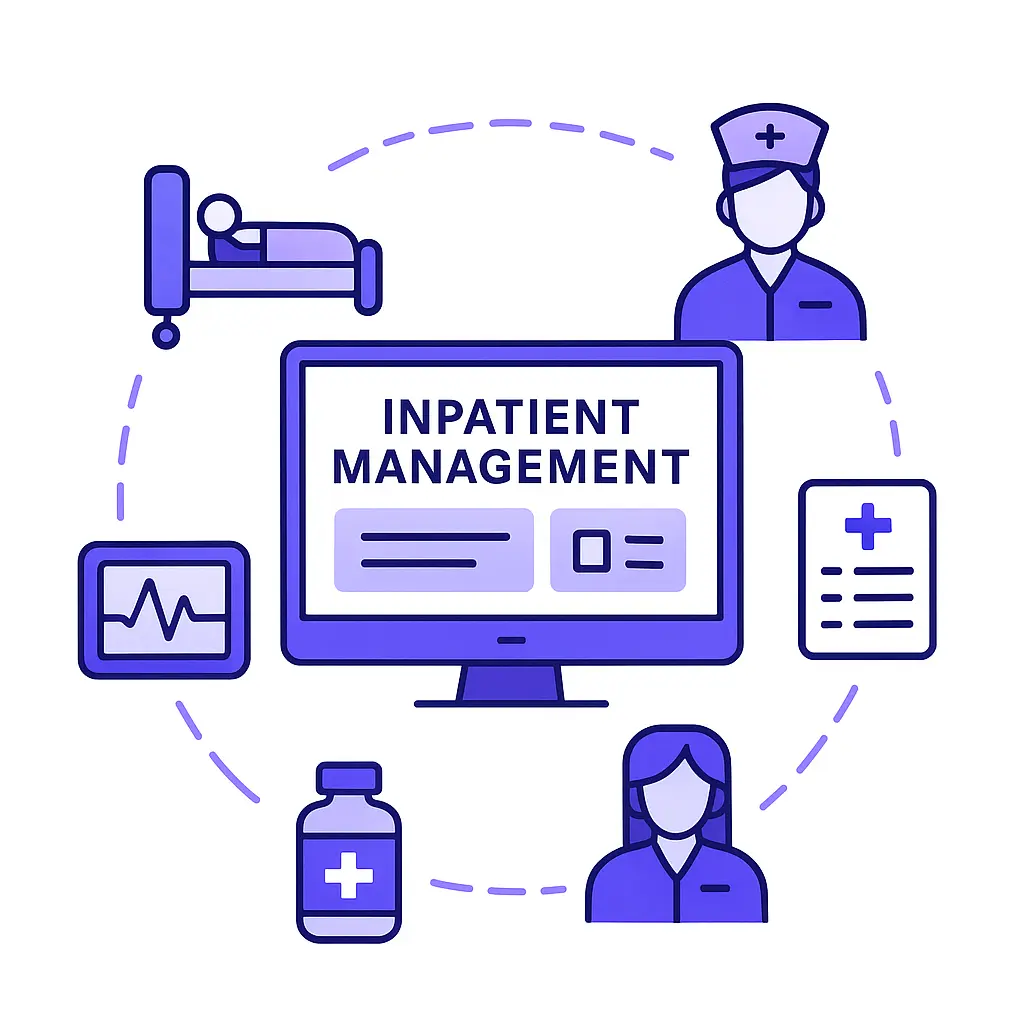
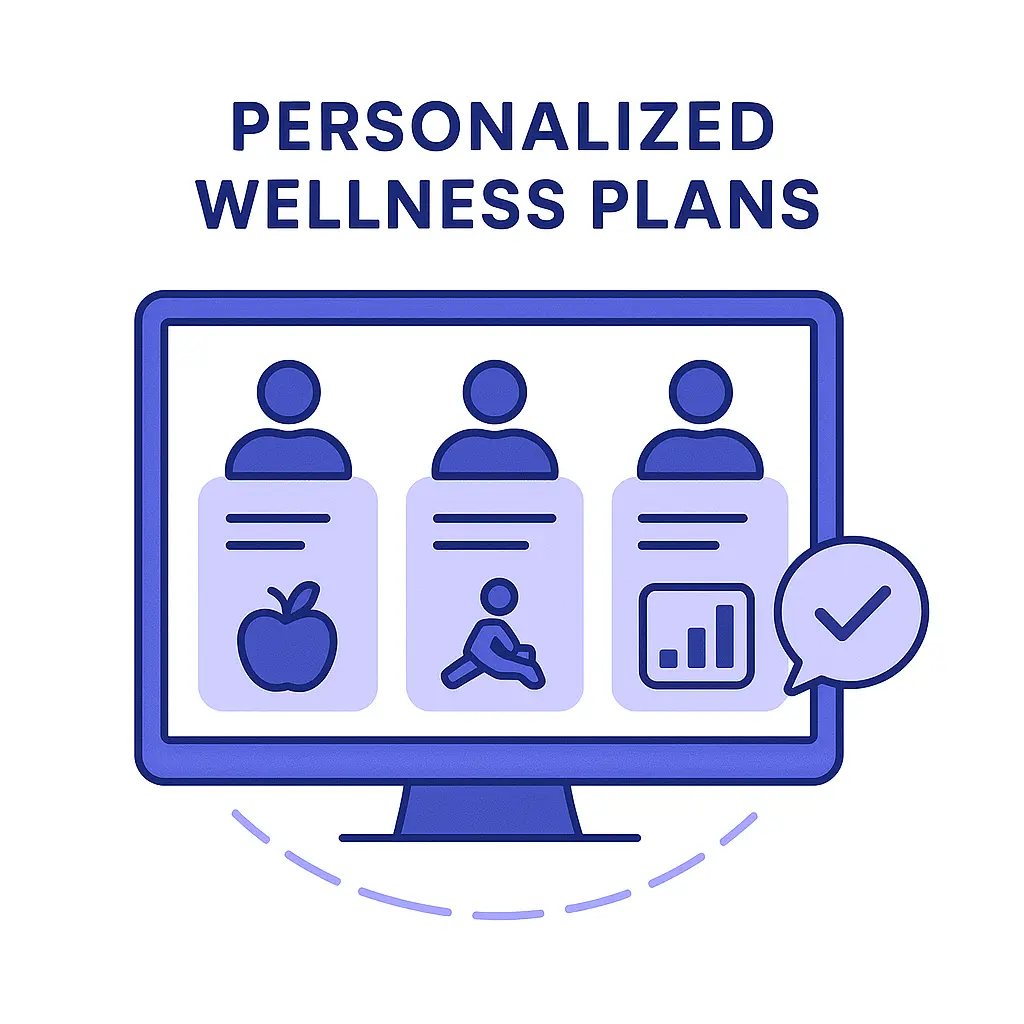
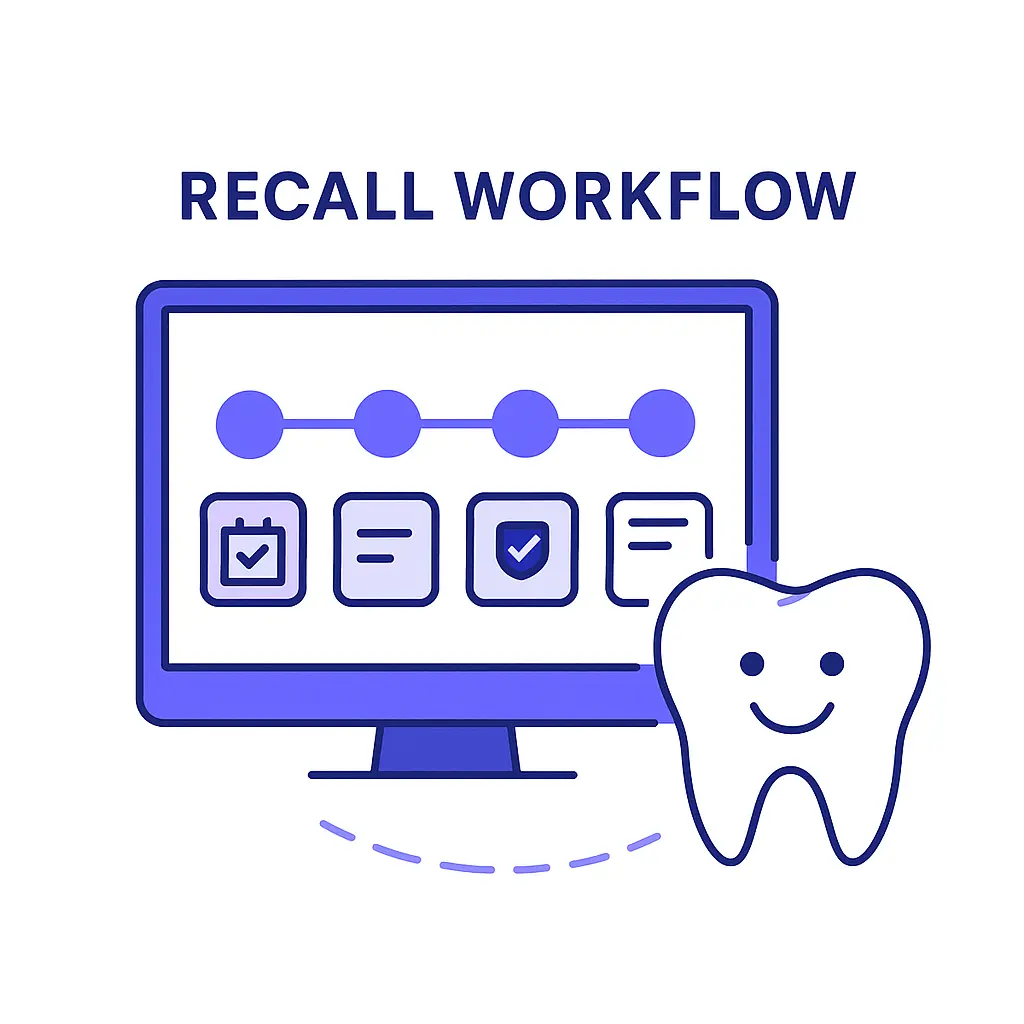
Don’t forget to consider the vendor’s reliability, track record, customer service responsiveness, and post-implementation support.
Implementation Best Practices
Active involvement from key stakeholders is crucial for successful CRM implementation. Assess CRM vendors based on their customization options and customer support services availability.
Implementing best practices ensures a smooth transition and maximizes the CRM system’s utility.
Future Trends in Healthcare CRM
Emerging technologies like AI, telehealth, and predictive analytics are set to transform the healthcare CRM landscape. Population health management will leverage CRM analytics to enhance patient care delivery and optimize healthcare outcomes. These advancements promise personalized patient experiences and streamlined administrative processes, redefining healthcare CRM.
AI and Machine Learning
AI and machine learning are transforming healthcare CRM by enabling smarter data usage, predictive insights, and personalized patient interactions.
Integrating AI into healthcare CRM efficiently manages vast amounts of patient data, ensuring accurate record-keeping and streamlined communication.
These technologies help healthcare providers identify at-risk patients and implement proactive measures for better care outcomes.
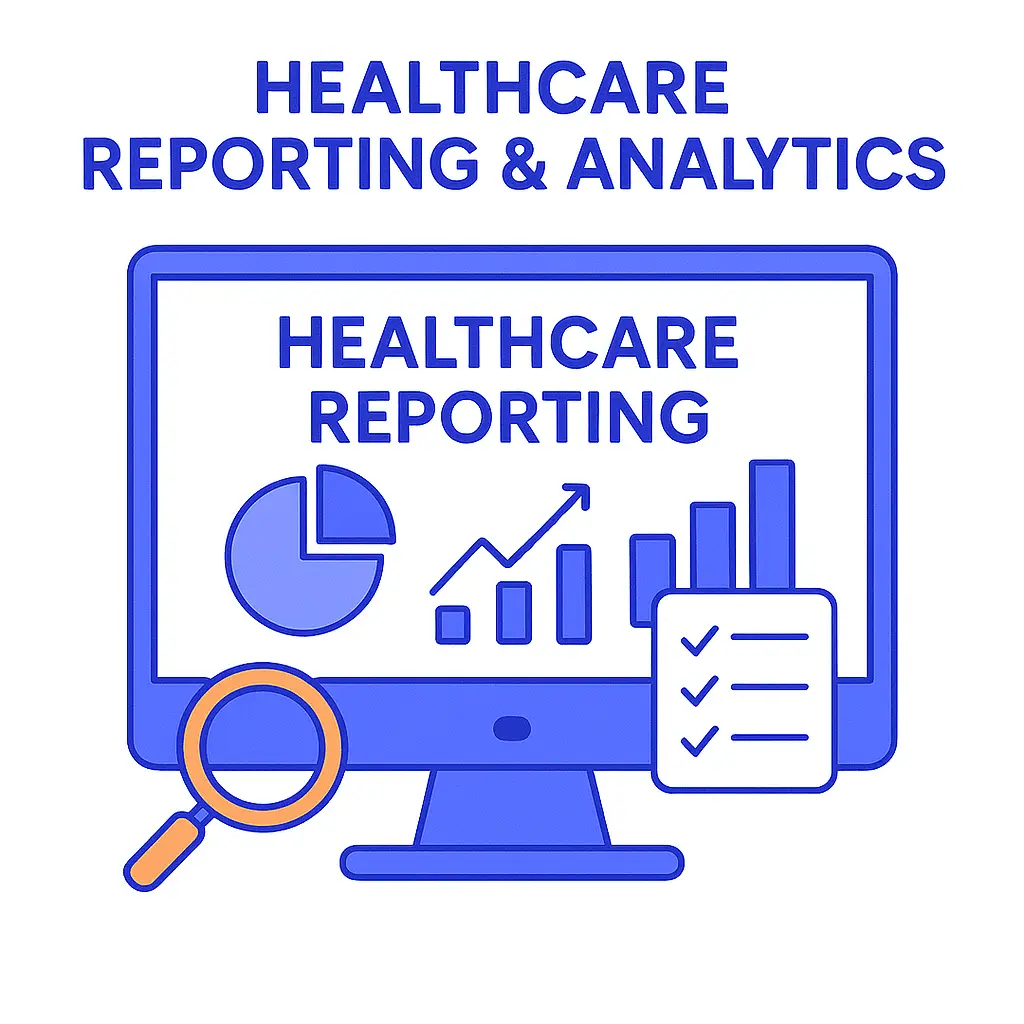
Telehealth Integration
Telehealth services are seamlessly integrated into healthcare CRM systems to provide continuous patient engagement and support. This integration enables seamless patient-provider interactions and enhances care accessibility, making healthcare more convenient and efficient.
Predictive Analytics & Patient Care
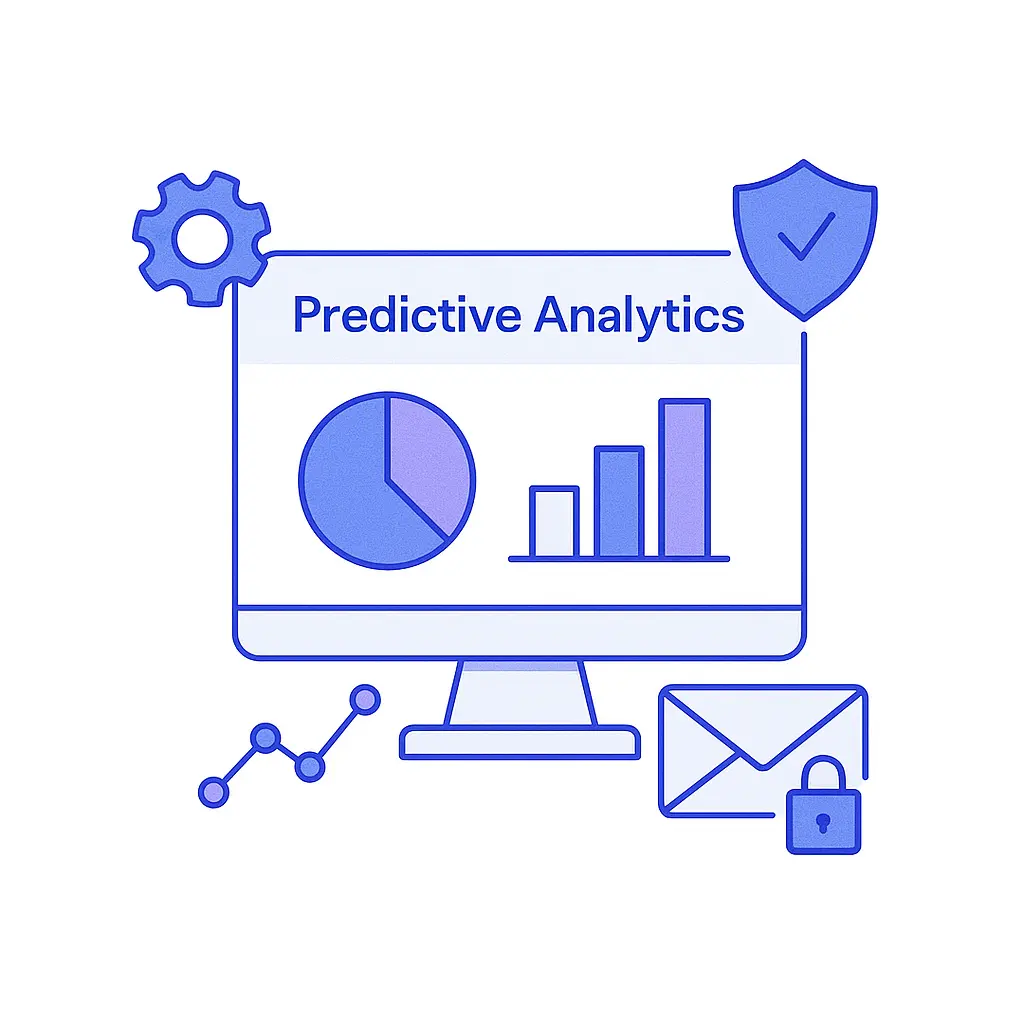
Predictive analytics is crucial for improving patient care by identifying trends and enabling proactive healthcare strategies.
Analyzing patient data and identifying patterns with predictive analytics helps healthcare providers foresee needs, improving operational efficiency and delivering personalized care.
This capability helps manage chronic conditions, predict potential health risks, and optimize treatment plans for better health outcomes.
Why Pulse Health is the Best CRM for Pharmaceutical Companies
Pulse Health stands out as the best CRM for pharmaceutical companies due to its specialized platform tailored specifically for the pharmaceutical and life sciences sectors. The platform supports multifaceted marketing strategies by transforming multi-channel data into actionable insights, making it easier for pharmaceutical firms to target and engage their audience effectively.
Pulse Health provides a HIPAA-compliant, centralized database with extensive customization based on unique business requirements, ensuring all regulatory standards are met.
Access to over 1 million healthcare professionals and 30 million patients allows Pulse Health to enhance audience targeting and engagement.
The platform’s wide range of industry-specific integrations consolidates engagement strategies and improves attribution measurement.
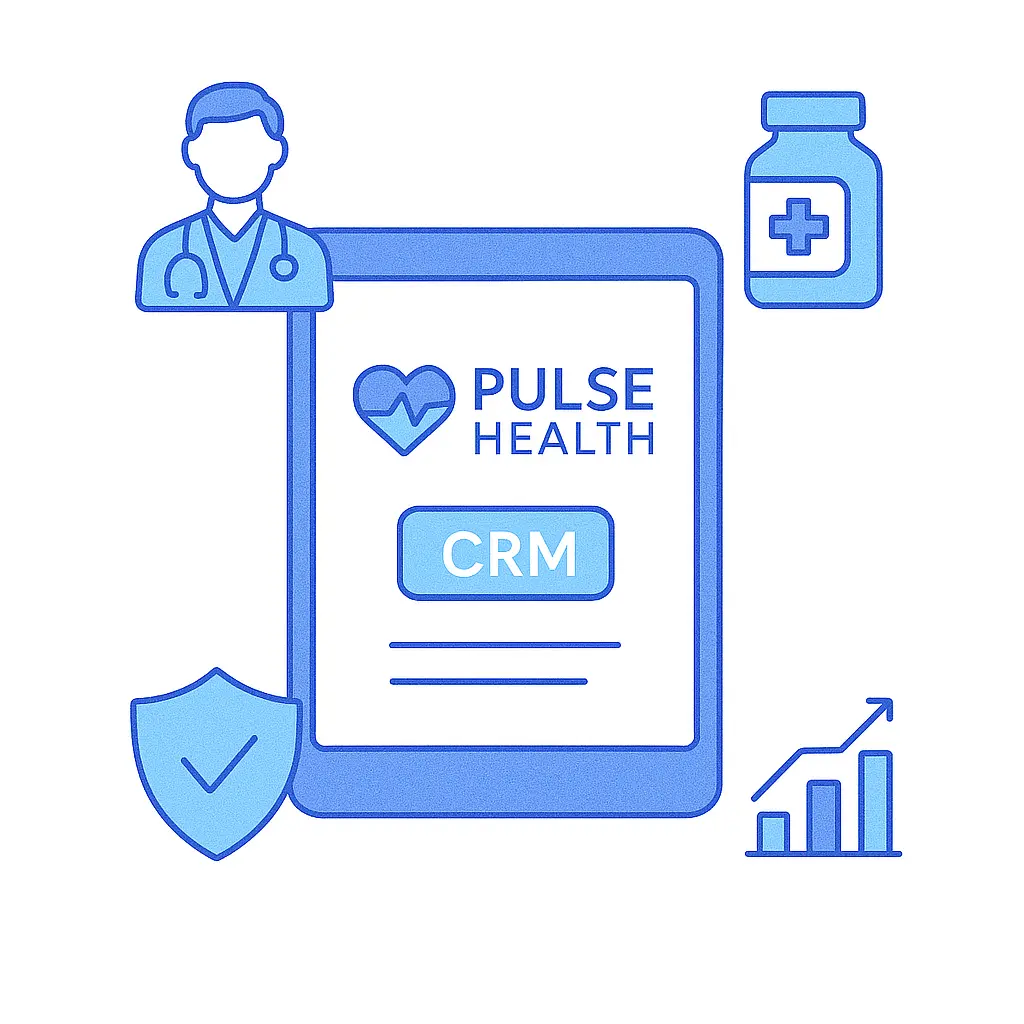
Pulse Health provides dedicated account managers specializing in life sciences marketing to support clients throughout their engagement, ensuring high client satisfaction and continuous improvement.
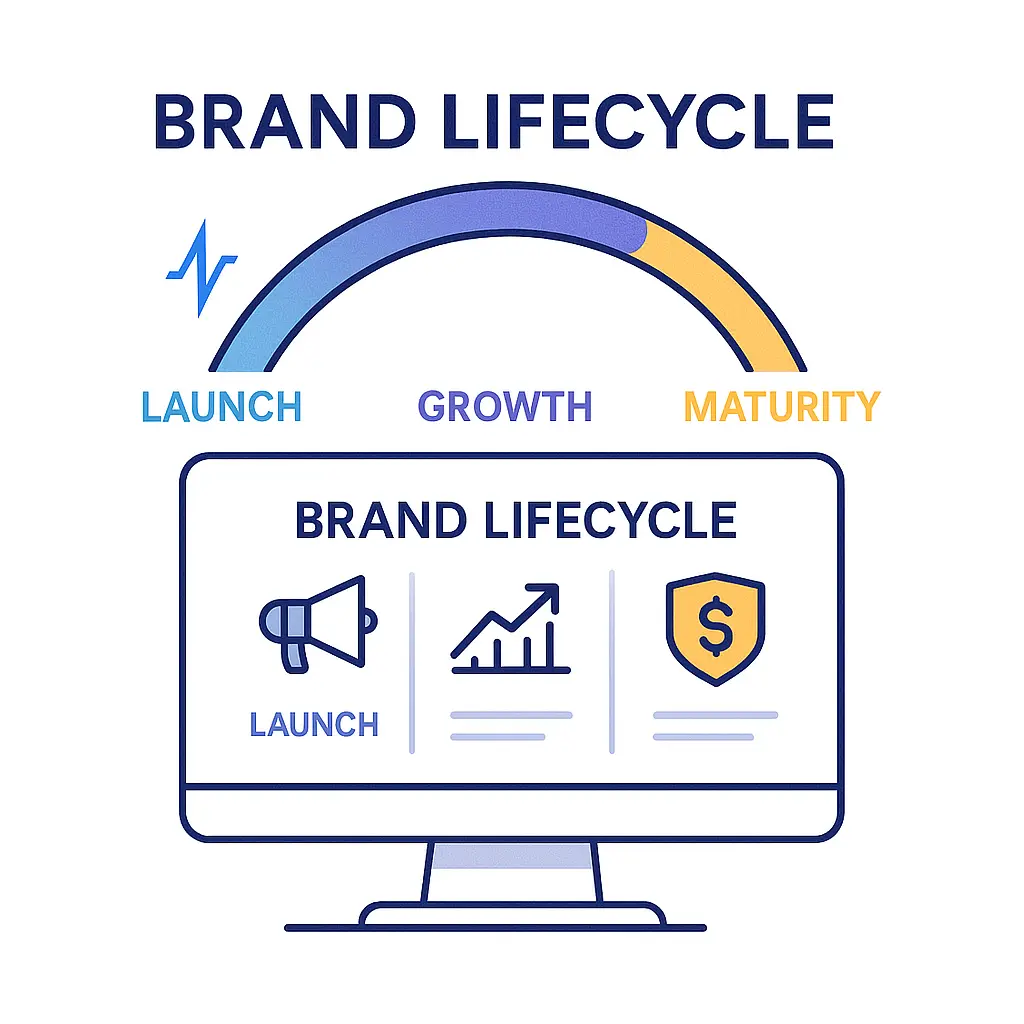
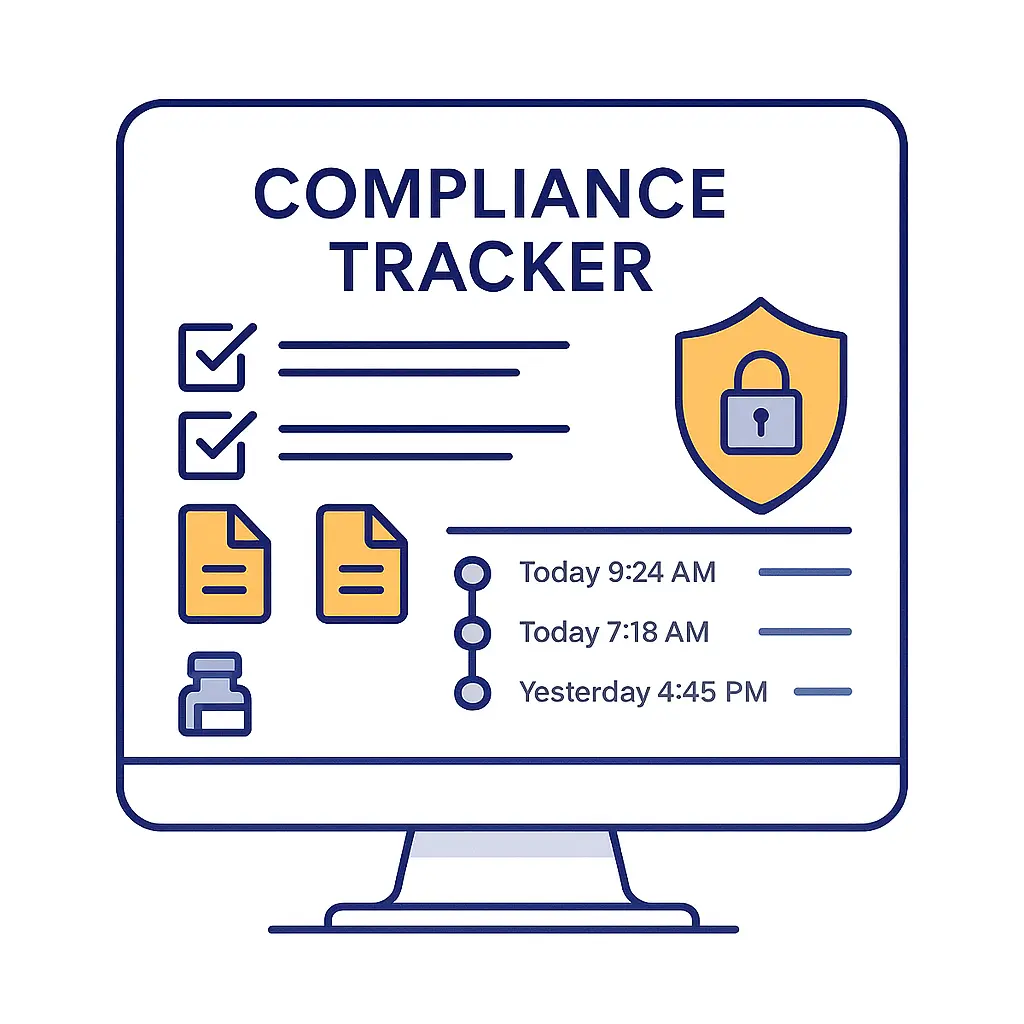
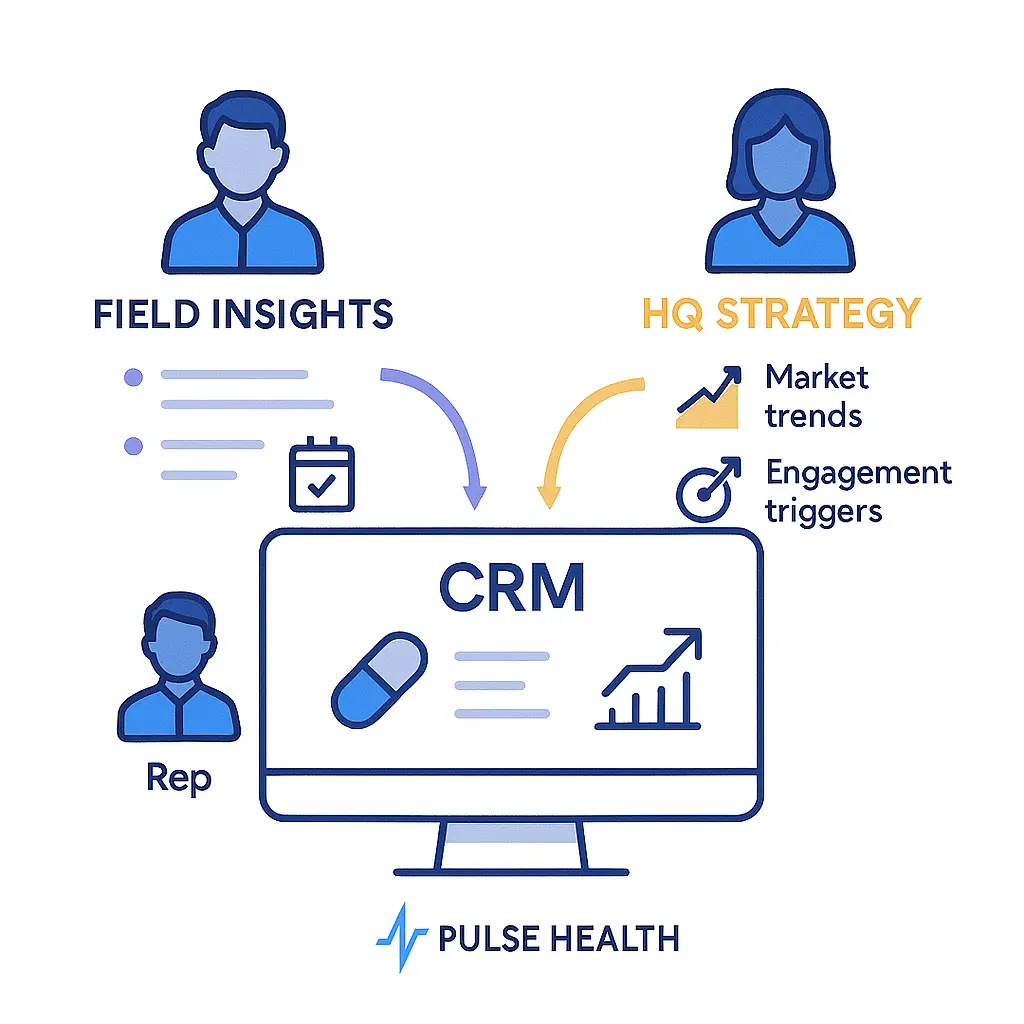
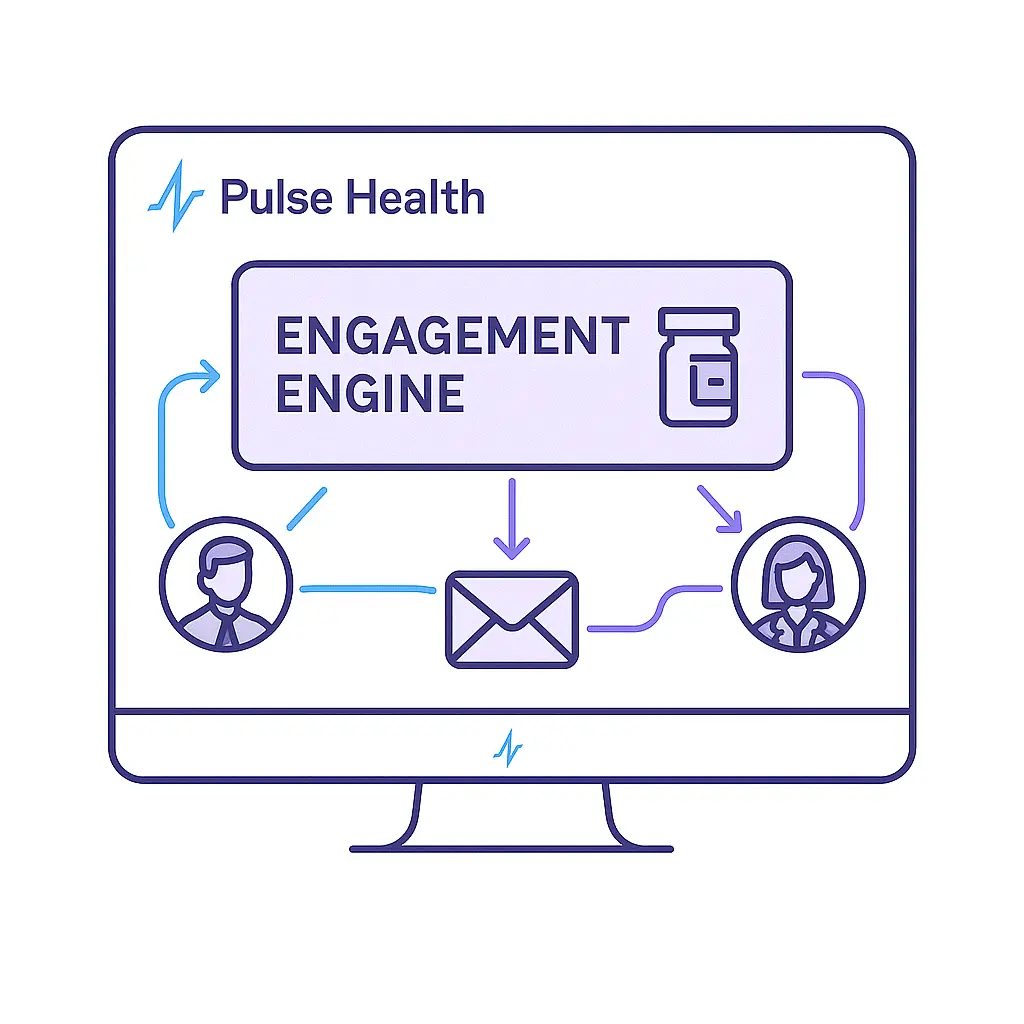
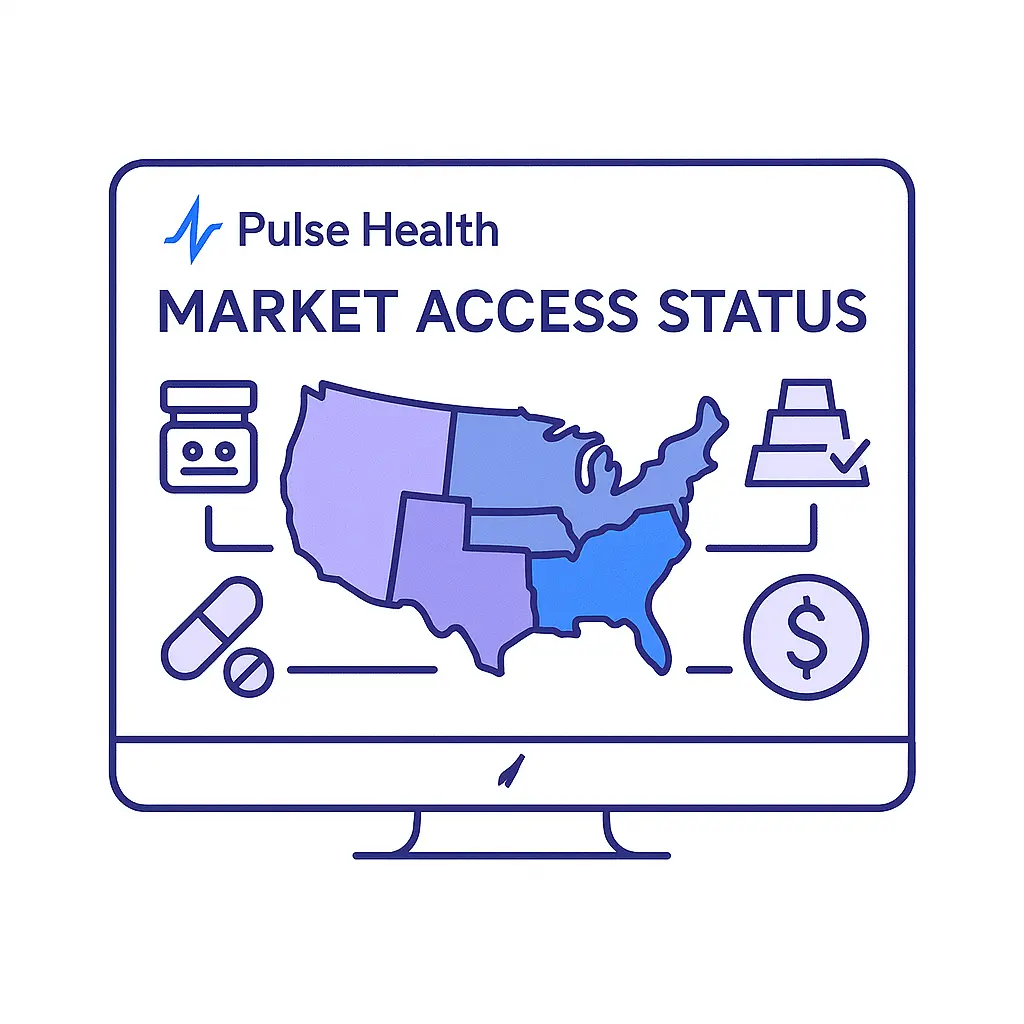
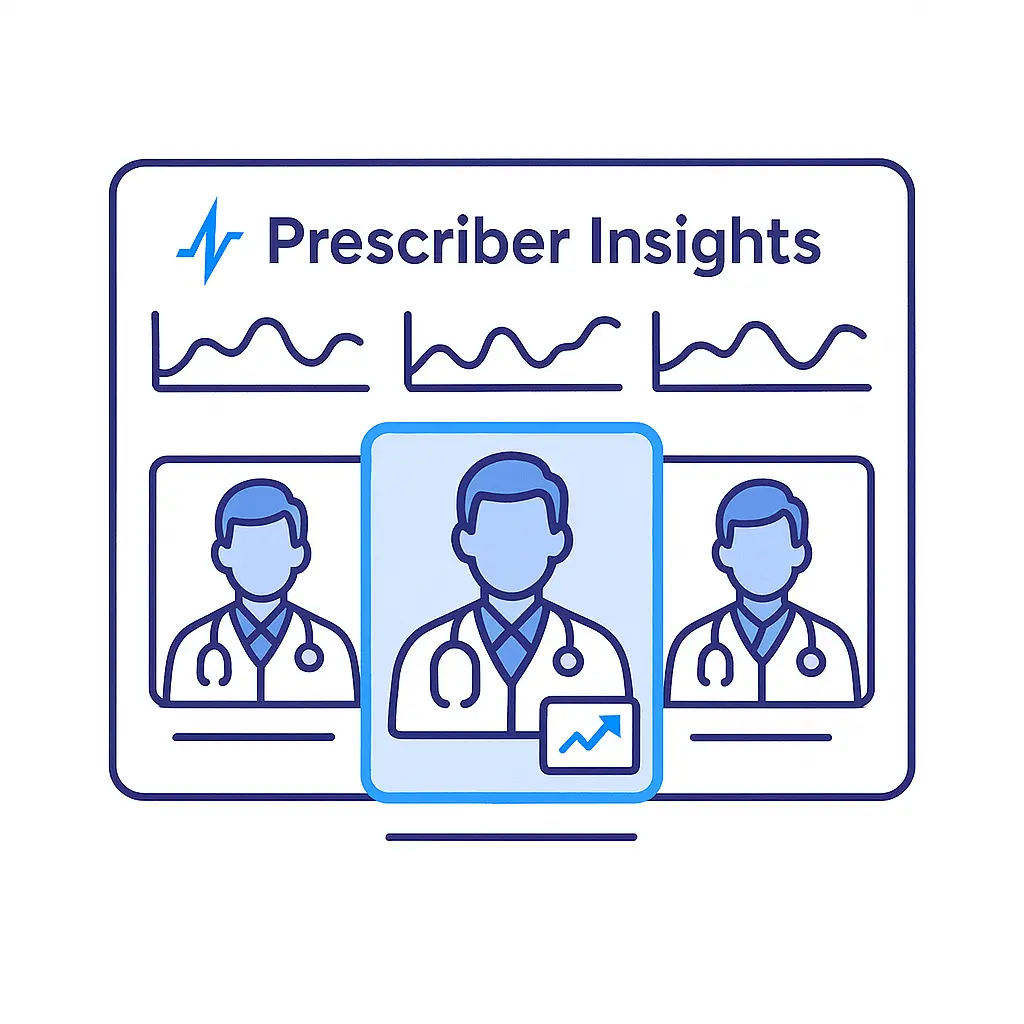
Get Started with Pulse Health Today
Ready to transform your patient relationships and streamline your operations? With Pulse Health’s powerful CRM solutions, you can:

- Boost patient engagement with personalized outreach
- Simplify administrative workflows to save time and reduce errors
- Enhance health outcomes through data-driven insights
Don’t let system complexity or security concerns hold you back—our platform integrates seamlessly with your existing tools and keeps your data protected. From AI-driven predictions to telehealth support, Pulse Health equips you with the cutting-edge features you need to stay ahead.
Join the growing number of healthcare organizations already seeing real impact. Get started with Pulse Health today and unlock the full potential of your patient care.
Ready to get started? Schedule a demo or contact our team now!
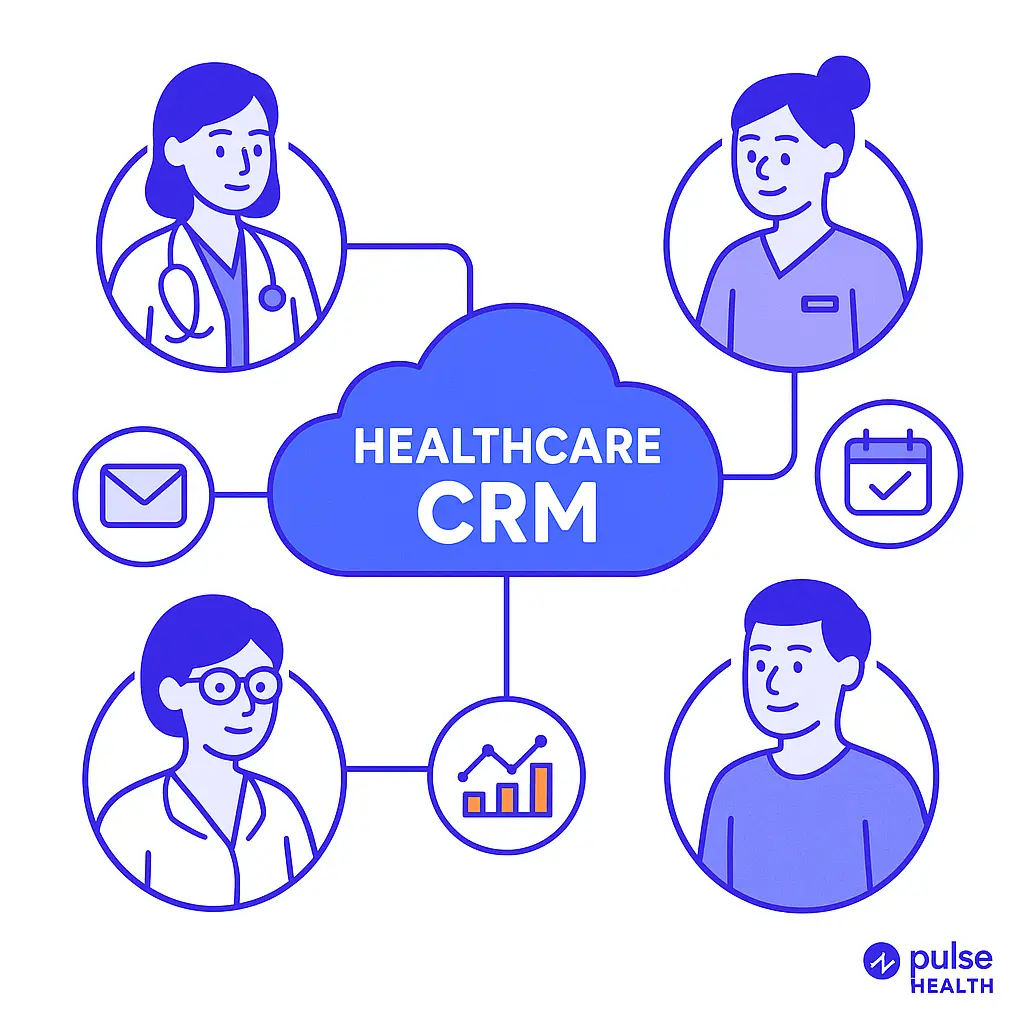
Frequently Asked Questions
The primary benefit of a healthcare CRM is the enhancement of patient engagement, which ultimately leads to improved patient care. This approach fosters stronger relationships between healthcare providers and patients.
A CRM primarily enhances patient relationships and manages administrative functions, whereas an EHR is centered on clinical documentation and patient health records. This distinction highlights the different roles they play in healthcare management.
Implementing a healthcare CRM presents challenges such as managing clinical complexity, ensuring data security, and achieving seamless integration with existing systems. Addressing these issues is crucial for successful deployment.
CRMs enhance patient outcomes by utilizing predictive analytics to offer personalized care and facilitate early identification of health risks. This proactive approach allows healthcare providers to address issues before they escalate.
Pulse Health is recommended for pharmaceutical companies due to its specialized features, industry-specific integrations, and a high client satisfaction rate. This tailored approach enhances operational efficiency and aligns with the unique needs of the pharmaceutical sector.
